Plitvice Lakes Through the Lens of a Croatian Digital Nomad Permit Holder
June 1, 2021 - Digital nomads give back to communities in various ways. The second in a new series on TCN, following the lens of Steve Tsentserensky, one of the early recipients of the Croatian digital nomad permit. Where better to continue than Plitvice Lakes National Park?
One of the discussion in Croatia these days surrounds digital nomads. What EXACTLY does Croatia get from digital nomads, especially if they do not have to pay income tax locally with the 12-month permit?
It is a classic Croatian tourism short-term mindset, which has become sadly familiar over the decade I have been writing about the subject.
For me, there are three key wins for Croatia - and they all cost nothing.
1. Permit holders may not pay tax, but they are spending on rent, food, drink, entertainment once they leave their virtual office. Think of them as long-stay tourists if you will. I never heard of anyone here complaining about tourists spending here.
2. The mindset. This, to me, is one of the most exciting aspects of the digital nomad era. People with fresh ideas, different experiences, stimulating lifestyles. If they are moving to Croatia because it is so great, perhaps Croatia has something to offer, rather than the sad path of emigration.
3. The fabulous free promo from digital nomads, clearly in love with this beautiful country. They decided to come, love what they find, and want to tell the world how amazing Croatia is - through blogs, Instagram posts and various other forms of social media. Kind of like the national tourist board's job if you like. Only better.
This series will focus on the last point, the fantastic free promotion of Croatia by these longer term visitors. TCN is thoroughly enjoying our working partnership with one of the early recipients of the digital nomad permit. Steve Tsentserensky from Ohio. Steve first came to my attention with this fabulous video of Zagreb.
We are big fans of Steve's work, and we met recently over a beer or three in Zagreb. Steve will be travelling around the country over the next 12 months (actually, we thing a little longer) documenting Croatia through his lens. We thought it would make a nice feature on the site, as well as showing how just one nomad with the permit is spreading the word about this beautiful country, so that others may see and come.
And so continues our new series - Croatia through the lens of a Croatian digital nomad permit holder, this time in Plitvice Lakes National Park.
They say a picture is worth a thousand words. So I will shut up now.
You can follow Steve on Instagram.
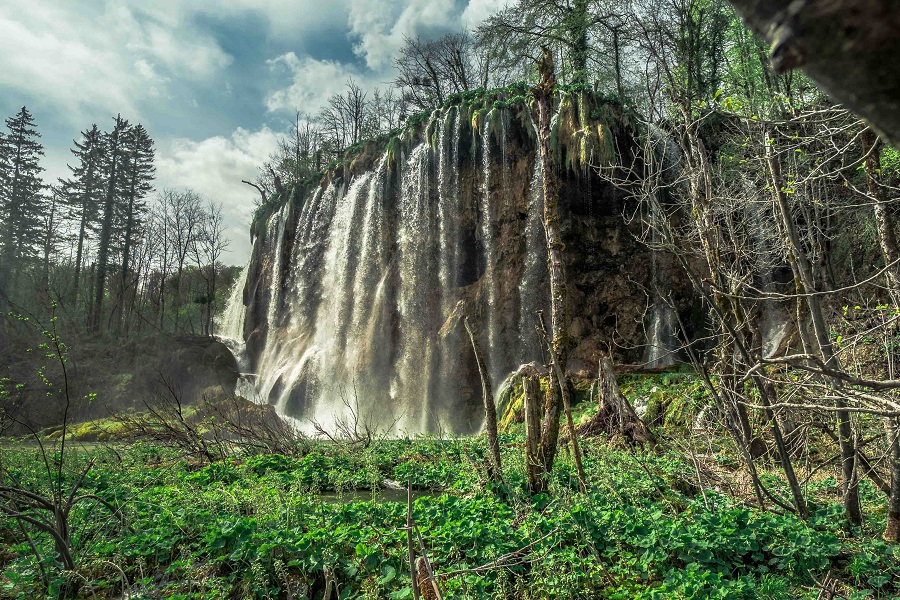
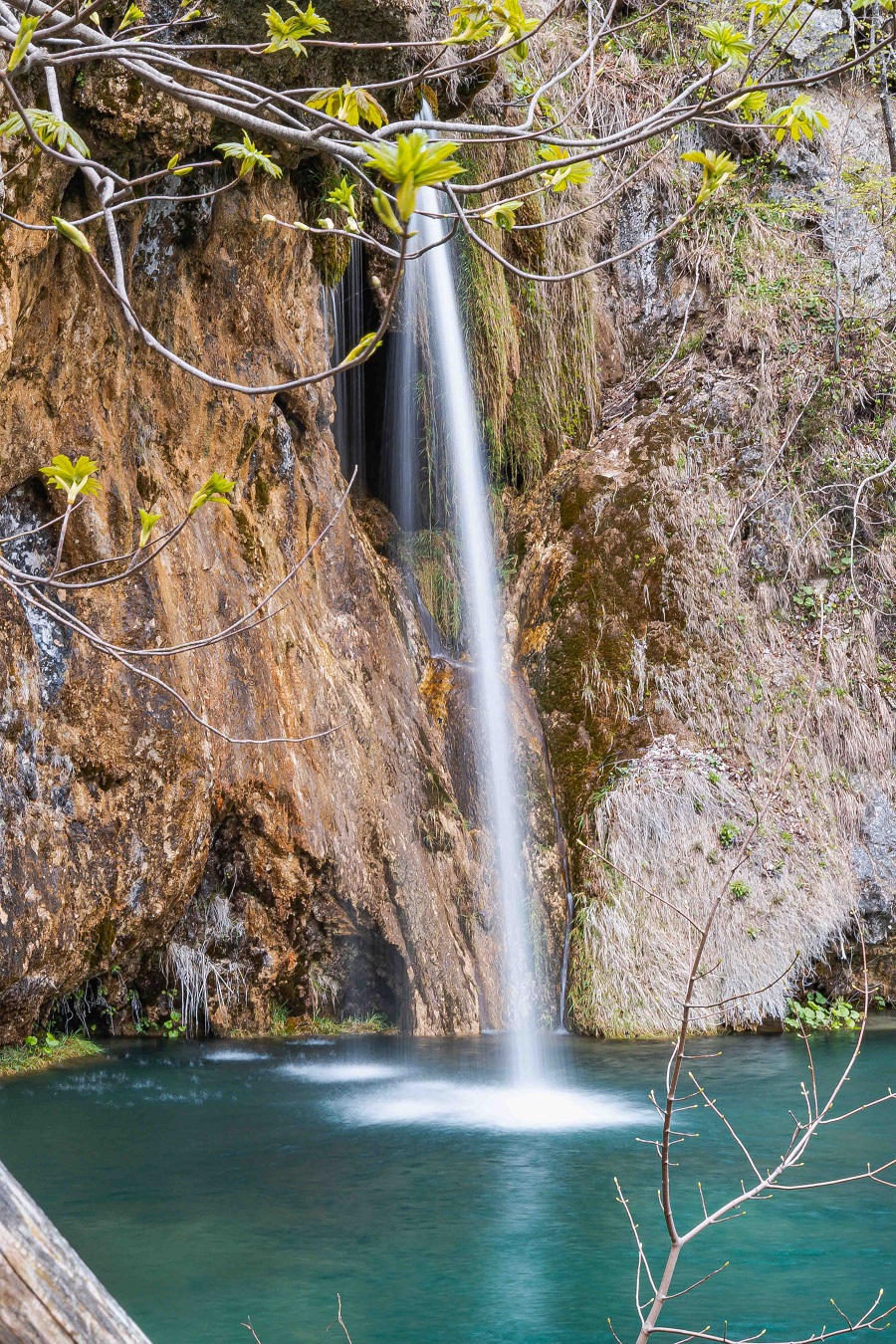
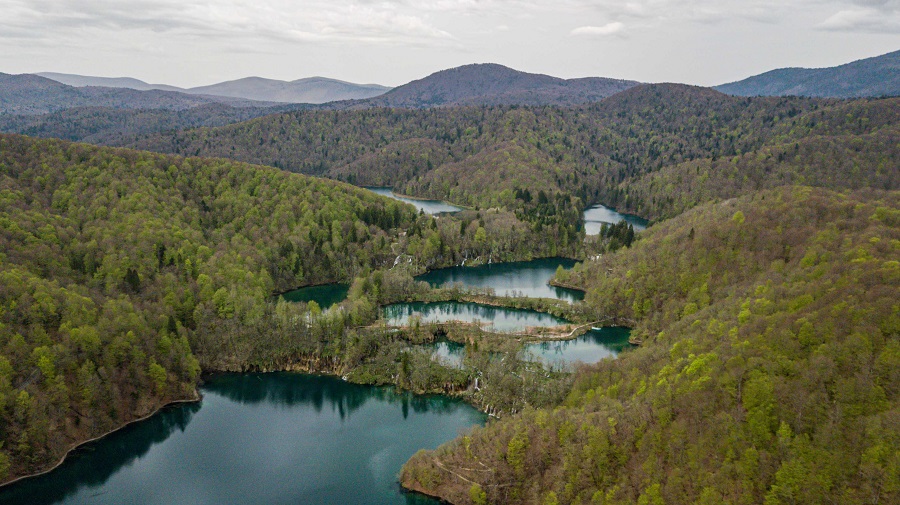
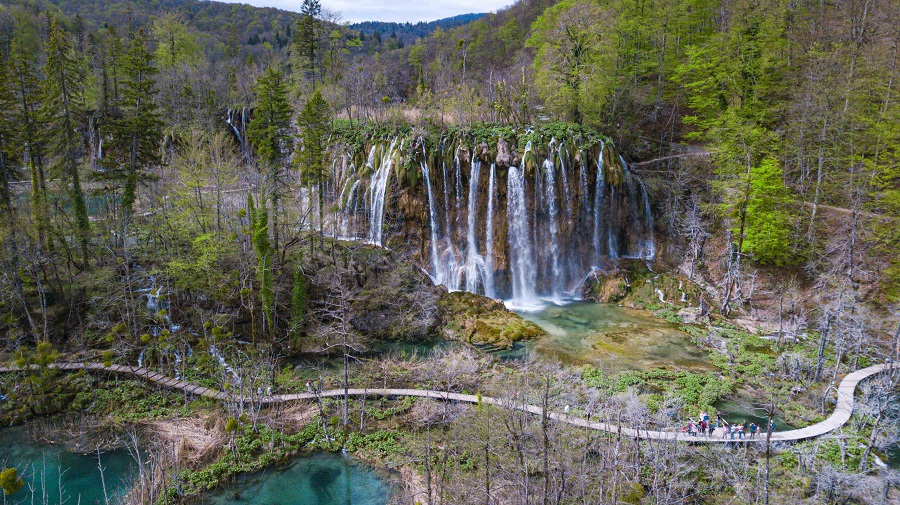
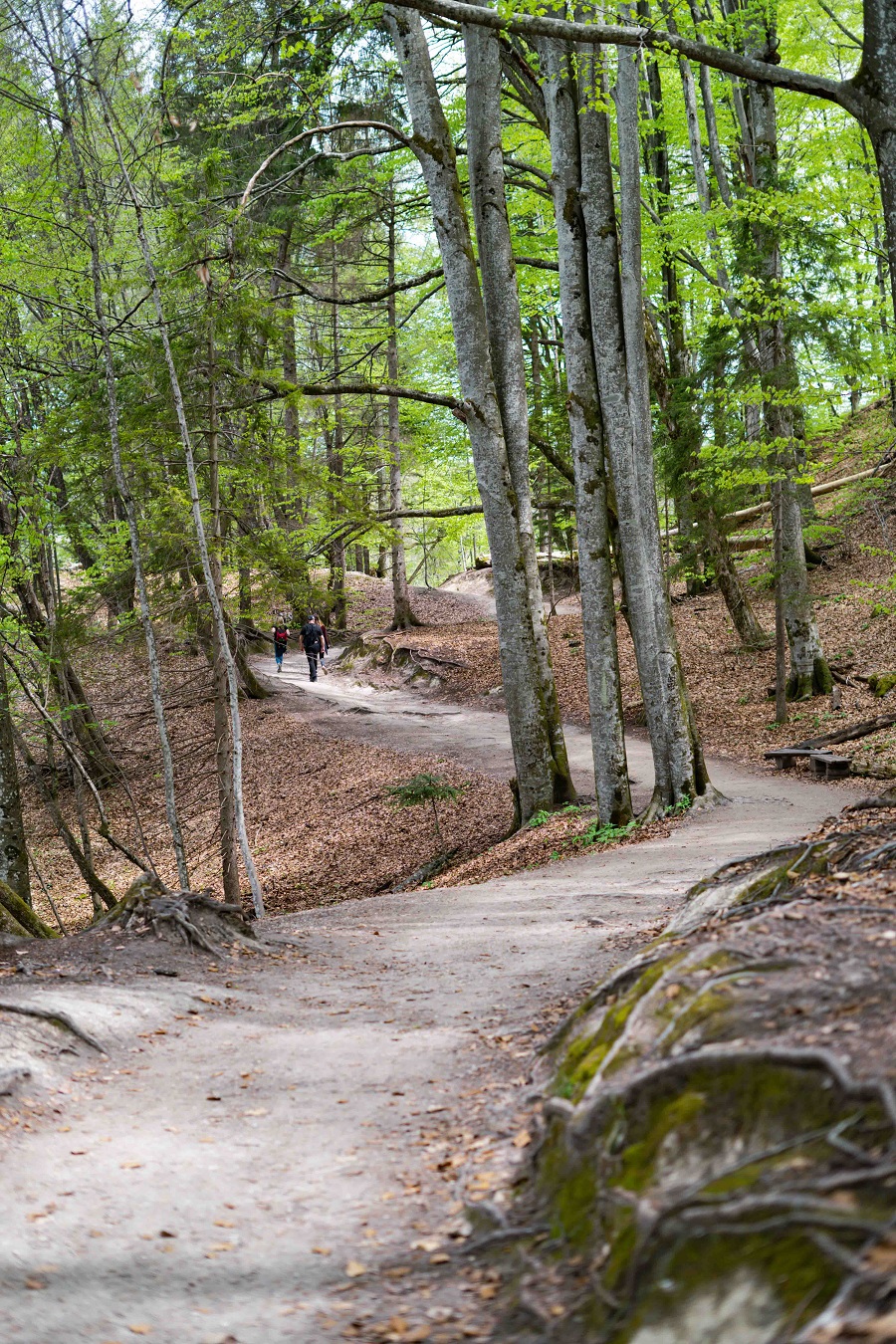
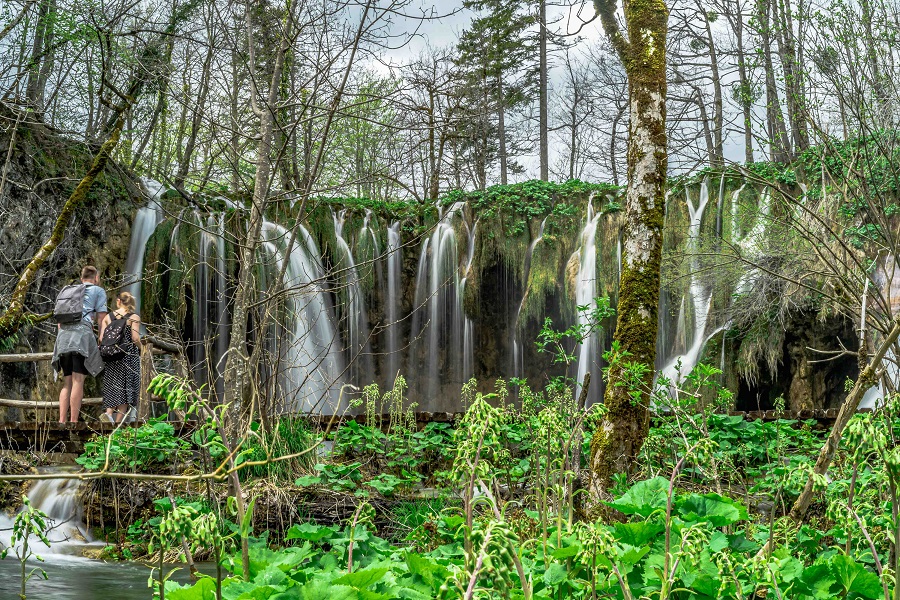
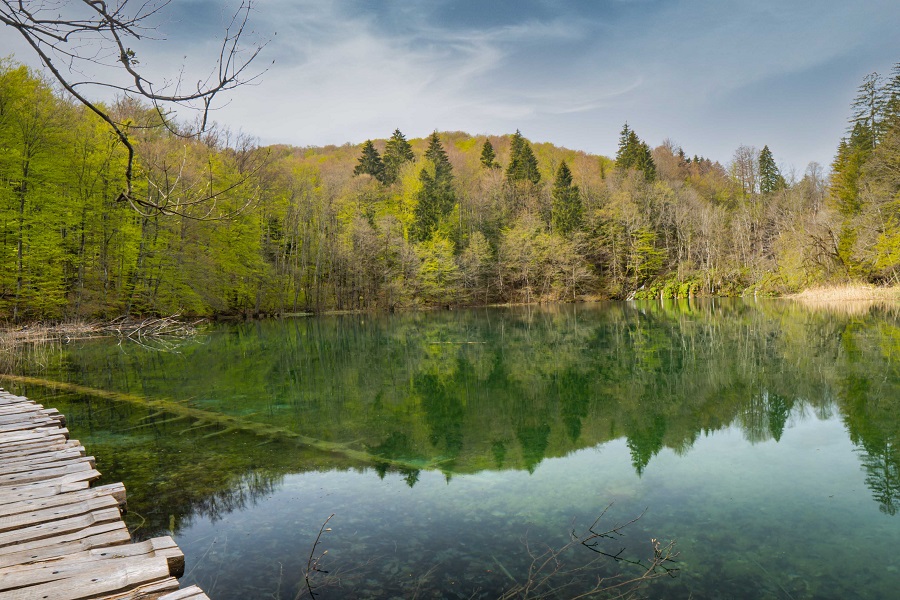
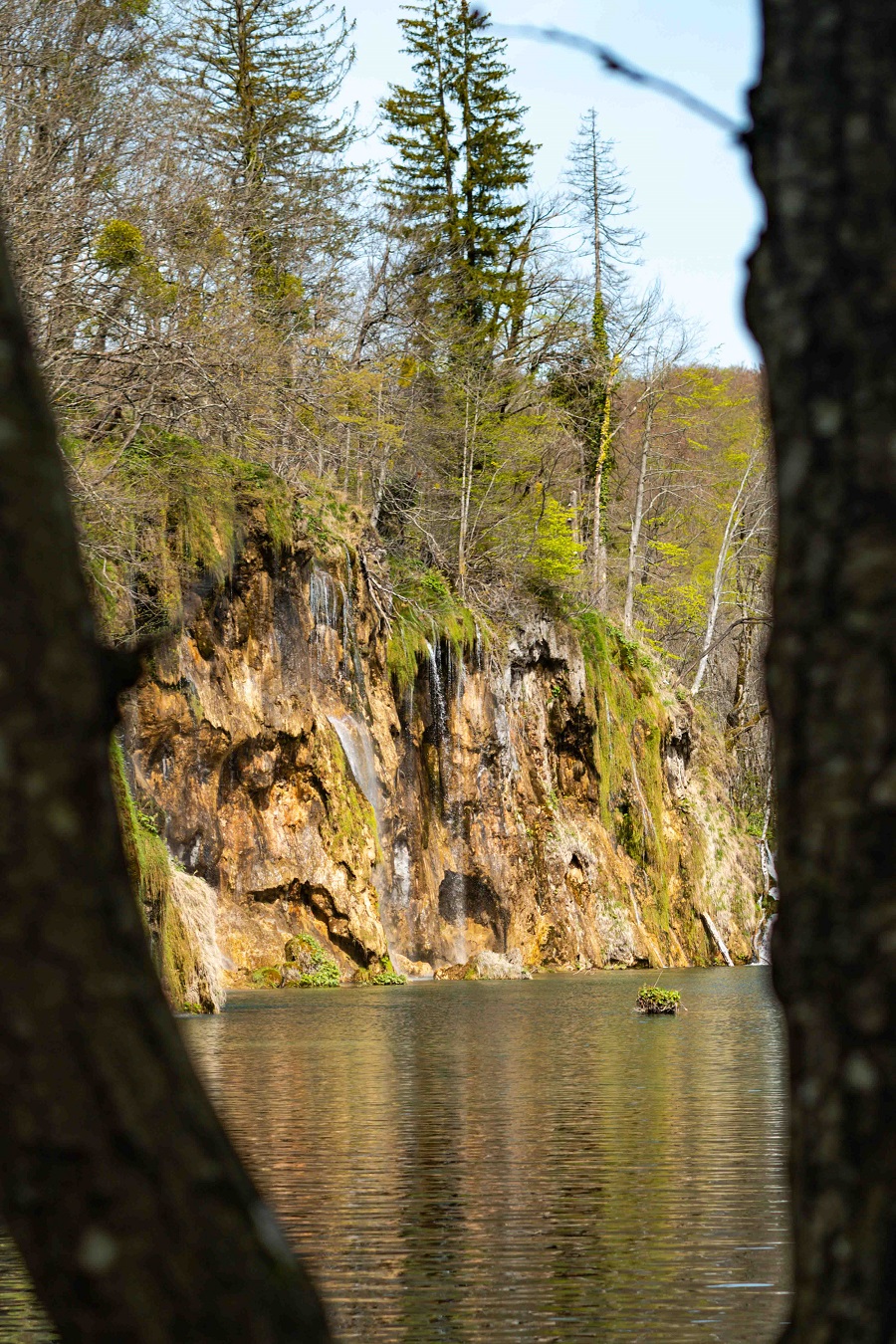
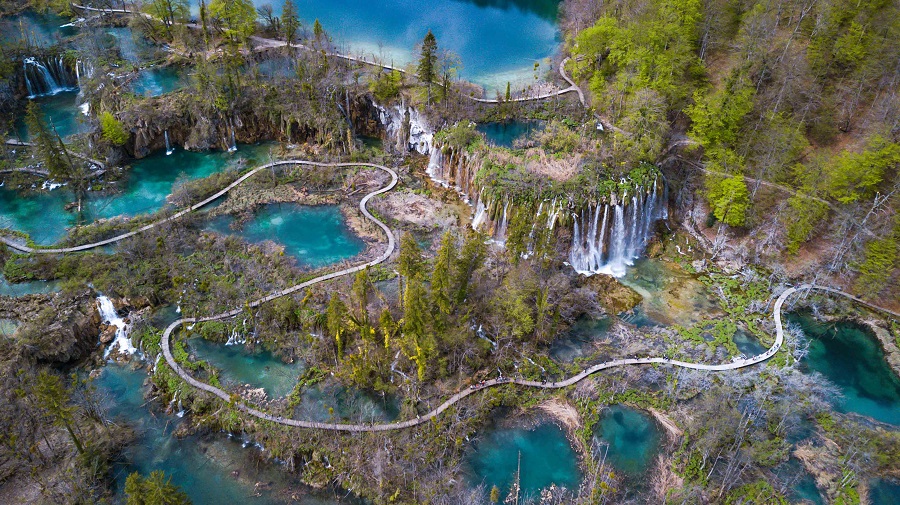
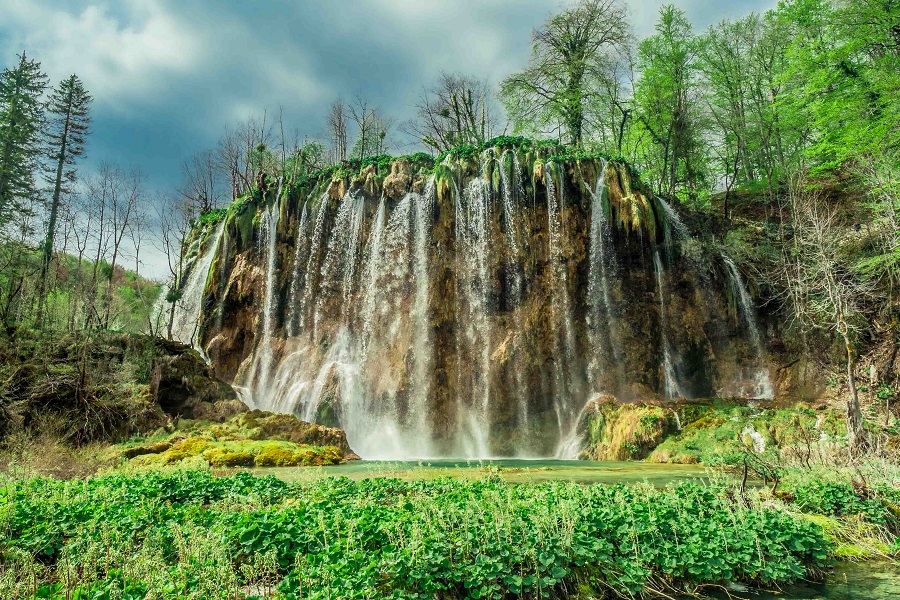
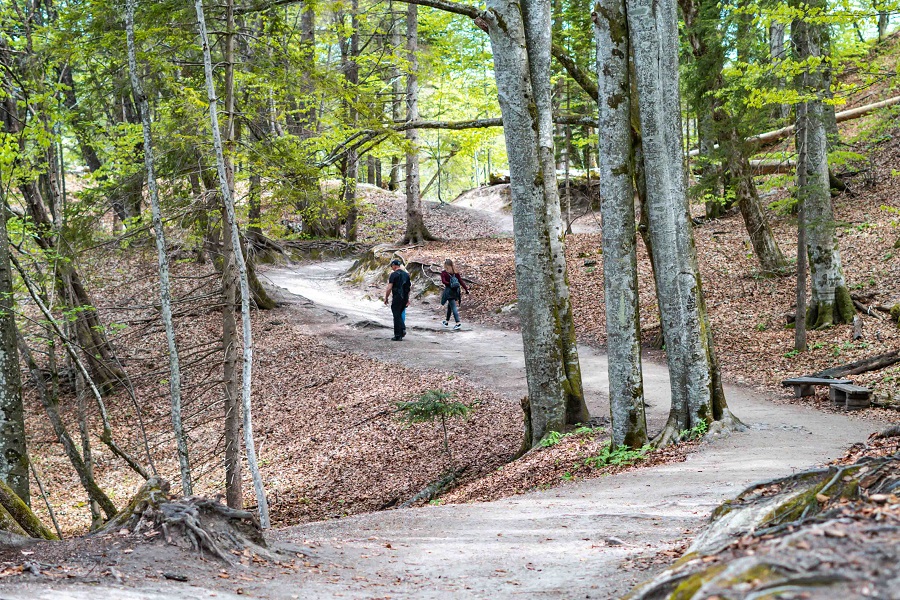
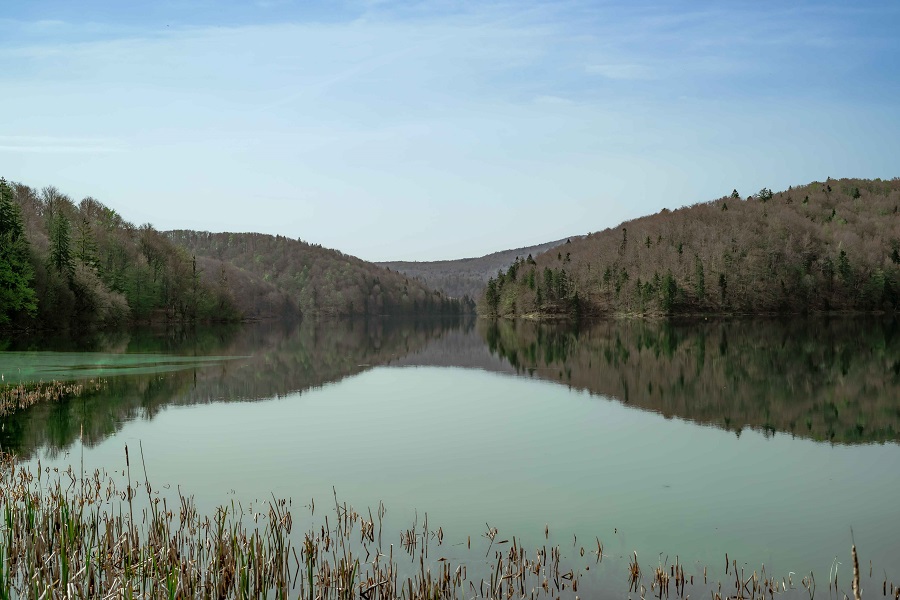
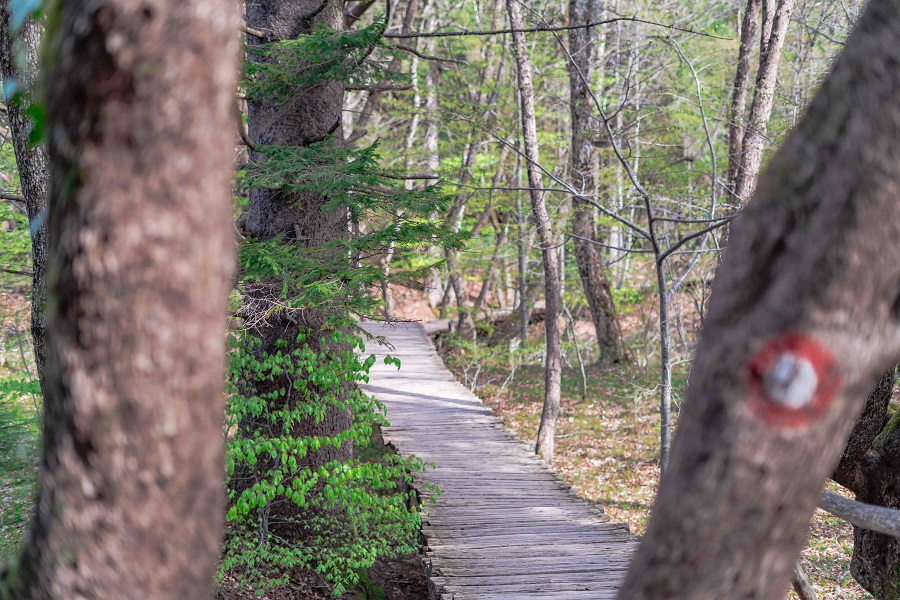
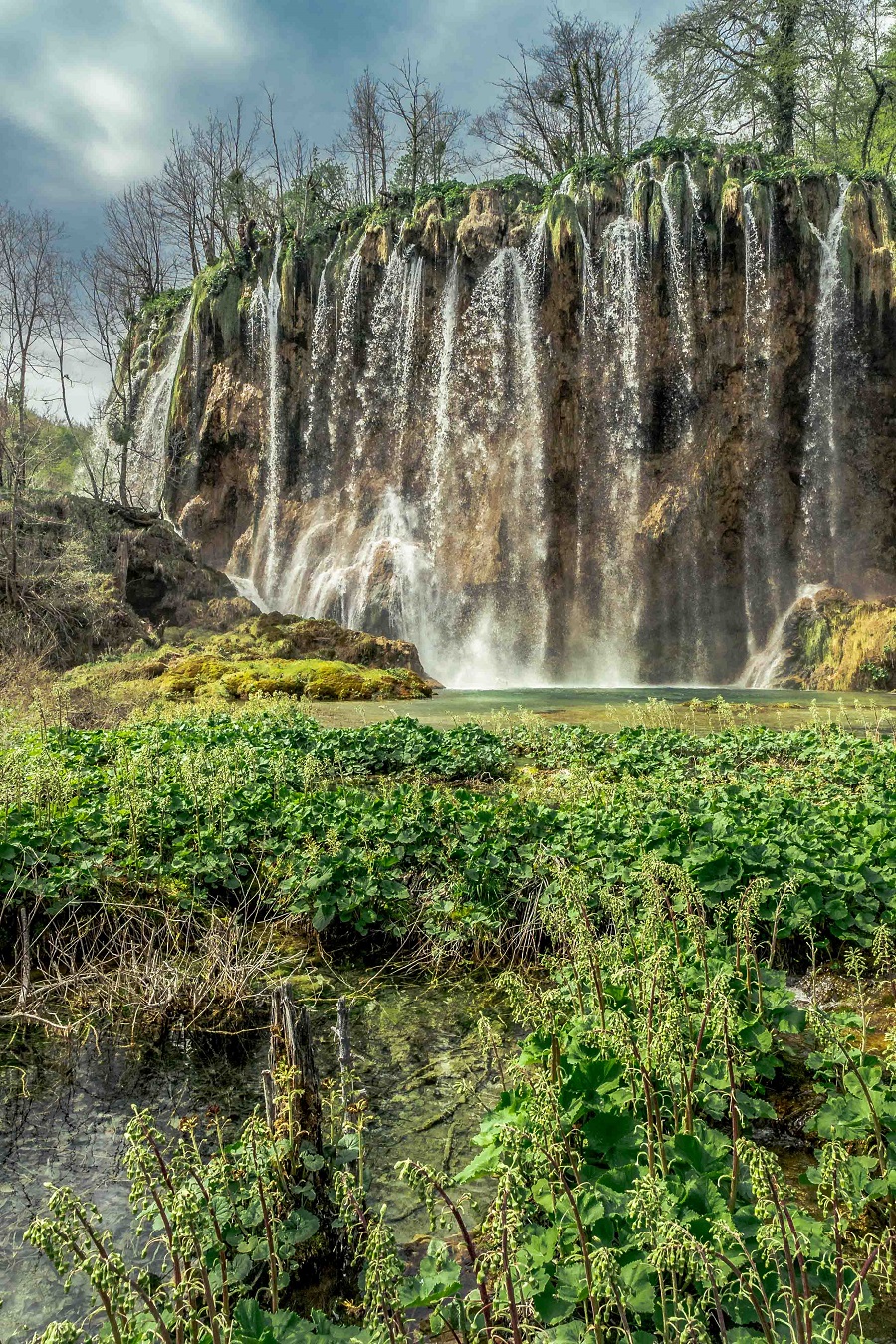
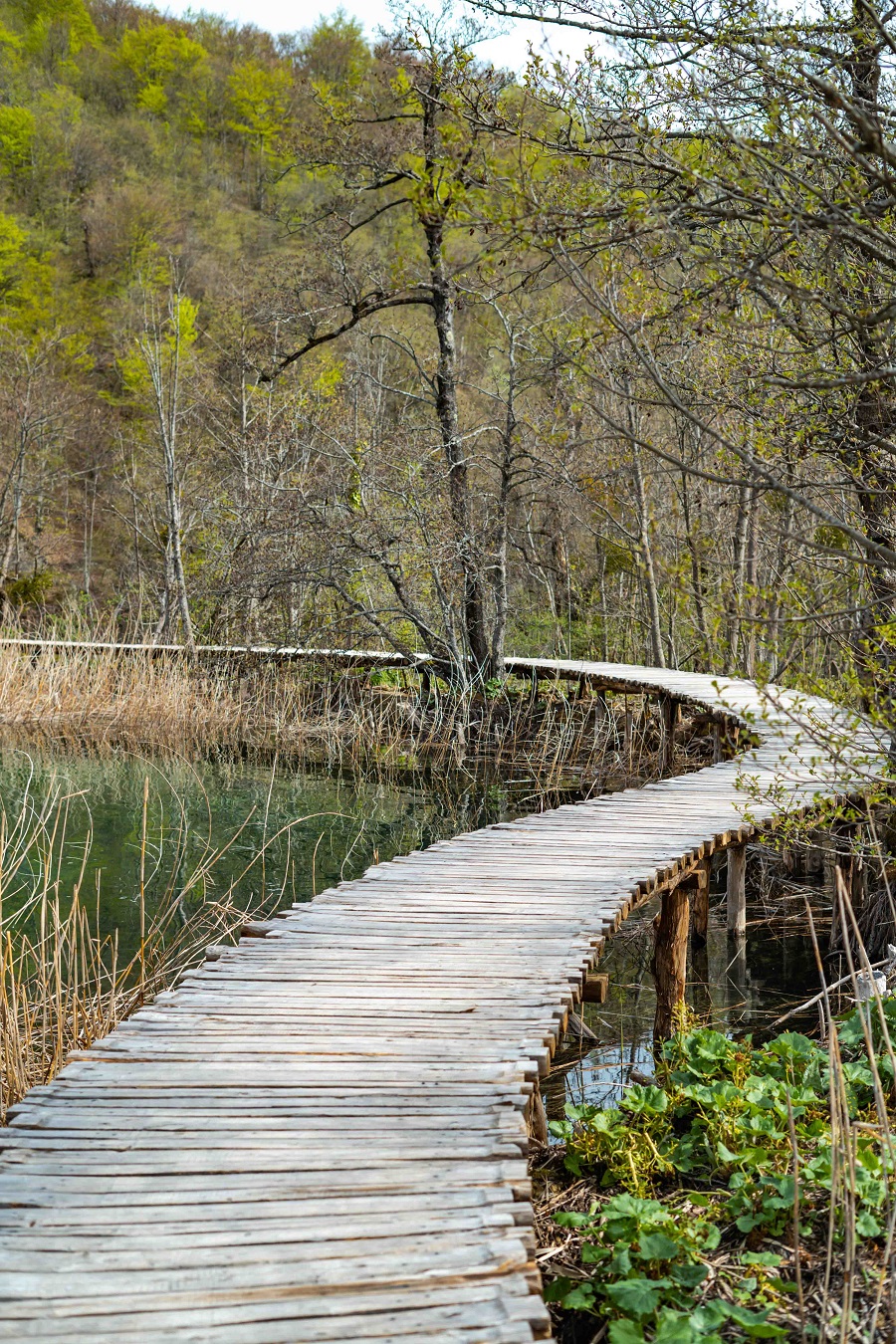
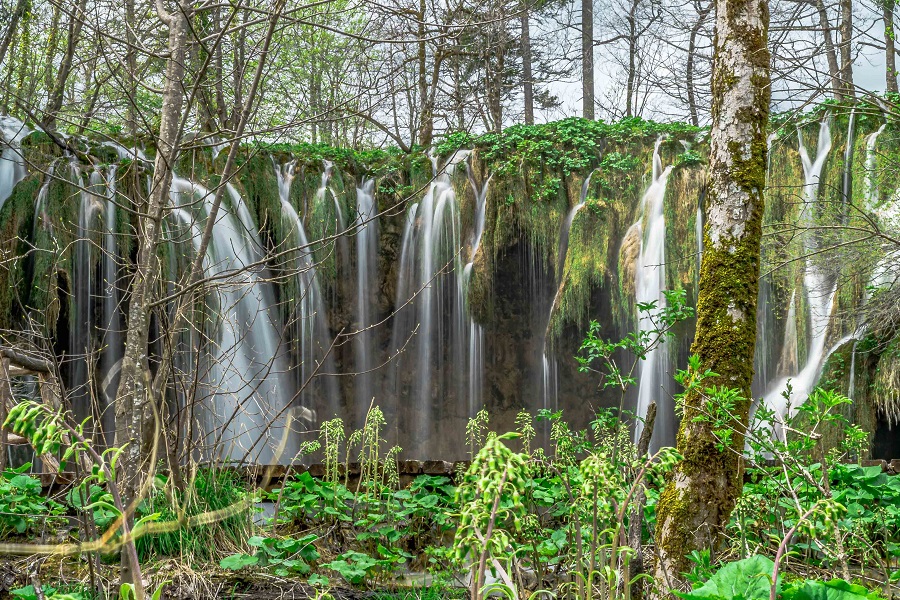
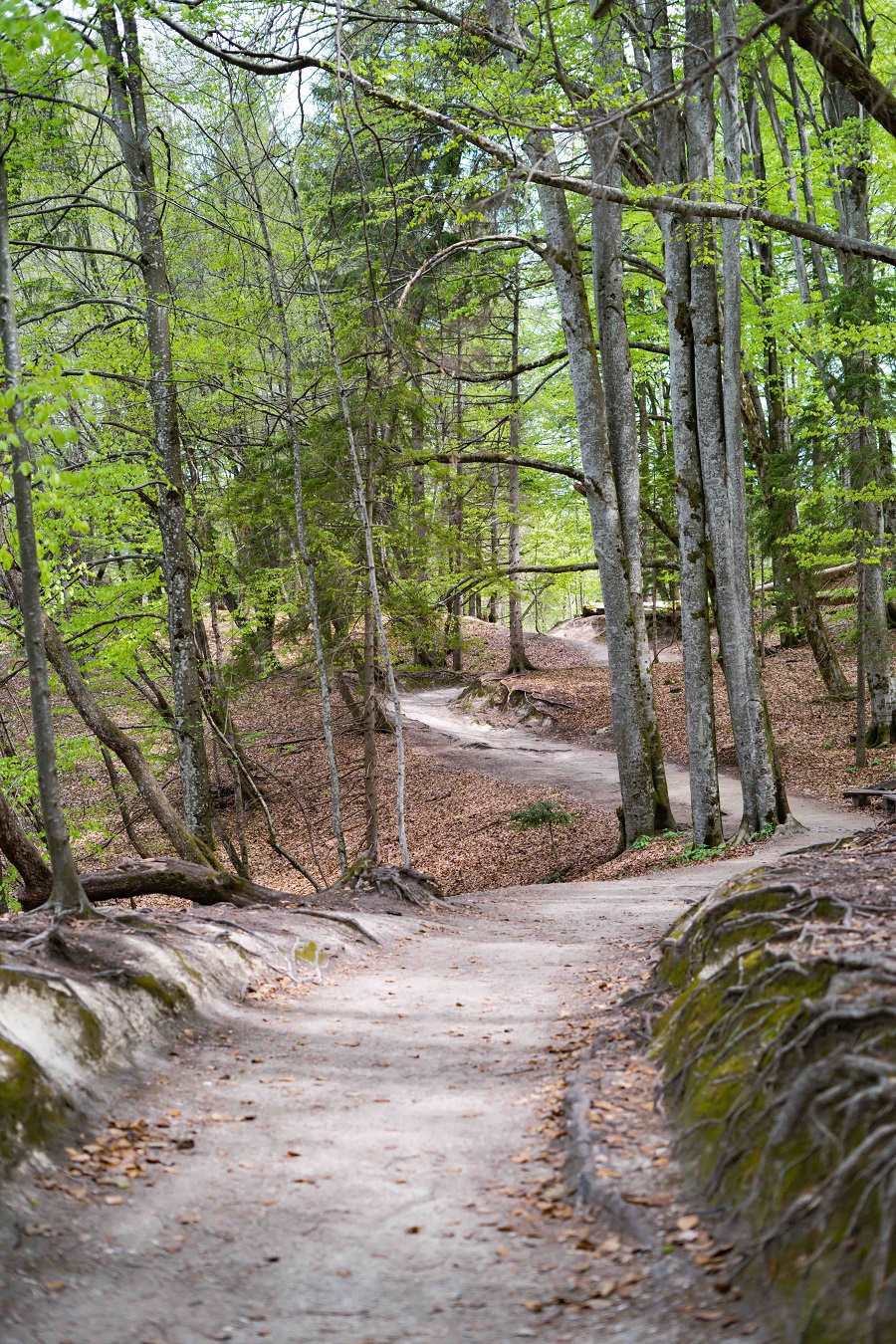
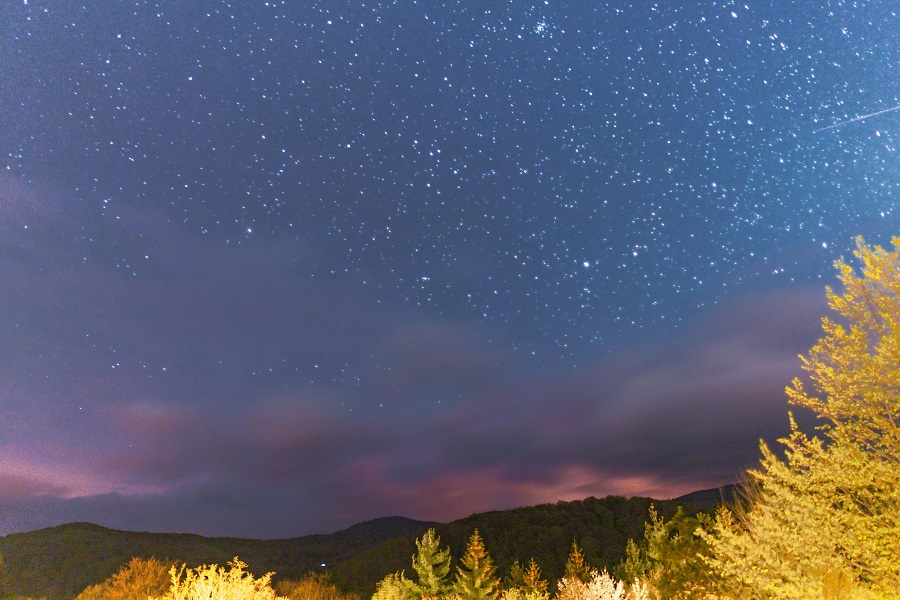
Croatian Tourist Collaboration Between Gospić, Plitvice and Udbina Approved
June 3, 2021 - Taking advantage of the tourist offer at your availability, a Croatian tourist collaboration between Gospić, Plitvice and Udbina has been approved to promote tourism in the country through joint activities between their area.
In order to further contribute to the promotion of Croatian tourism, but also to jointly carry out activities in their areas, the tourist boards of the city of Gospić and the municipalities of Plitvice Lakes and Udbina, received approval to join a Croatian tourist collaboration, reports Turističke Priče. Namely, in order to jointly develop and promote tourist products, tourist communities will act as unique destinations through joint activities.
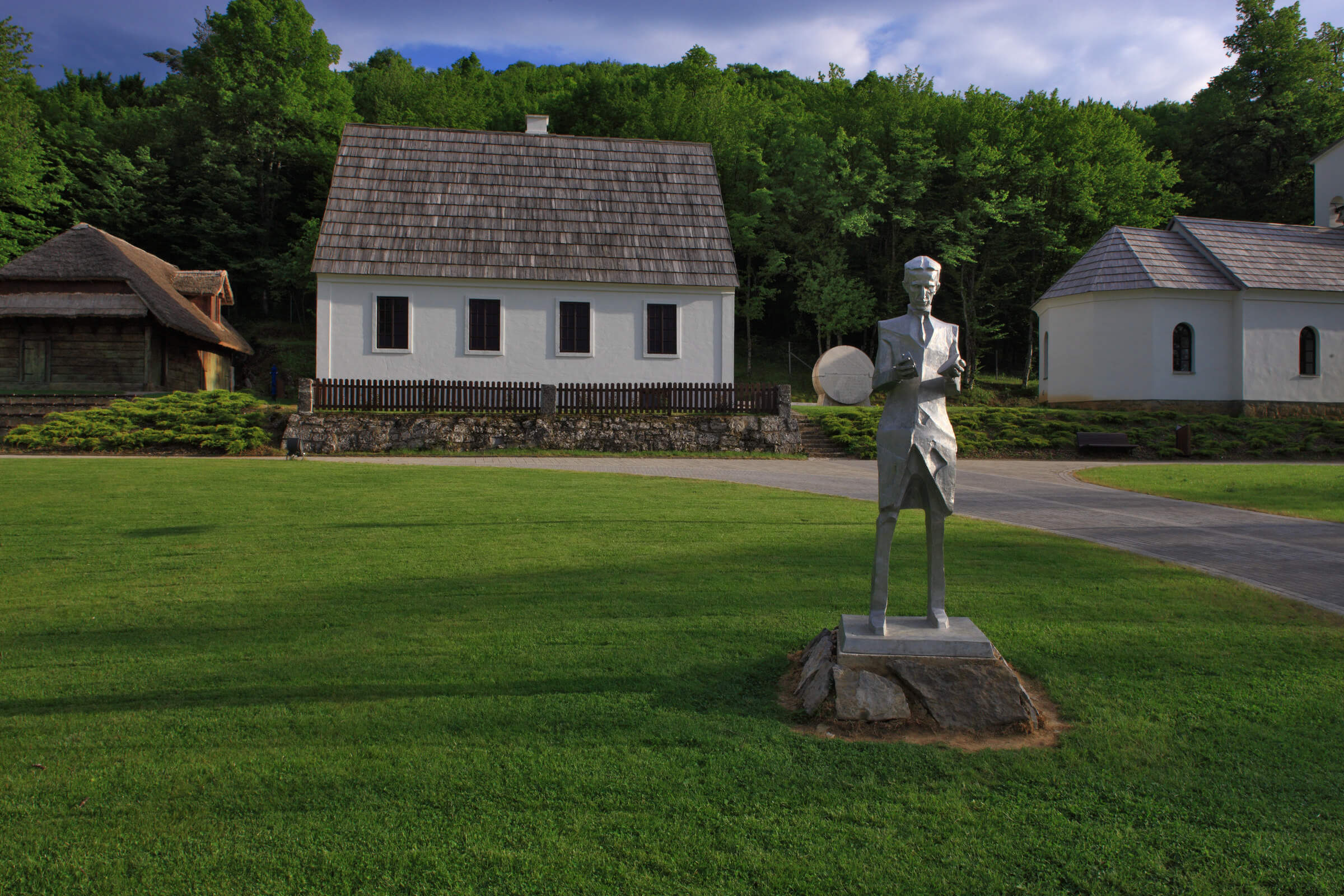
Nikola Tesla Memorial Center, in Smiljan, outside Gospić
This is a story that is not new in Croatia and has proven to be a successful project that contributes to the development of destinations. An additional advantage is that the area of Plitvice Lakes, the town of Gospić, and the municipality of Udbina are located within a radius of 50 kilometers, they touch each other and are located in the same, Unit of Regional Self-Government, Lika-Senj County.
Plitvice Lakes National Park has a world natural pearl and a large number of tourists who can complete their stay in the National Park by visiting the town of Gospić, which is the center of the county, and choose one of many additional sports, tourism, adrenaline or cultural activities.
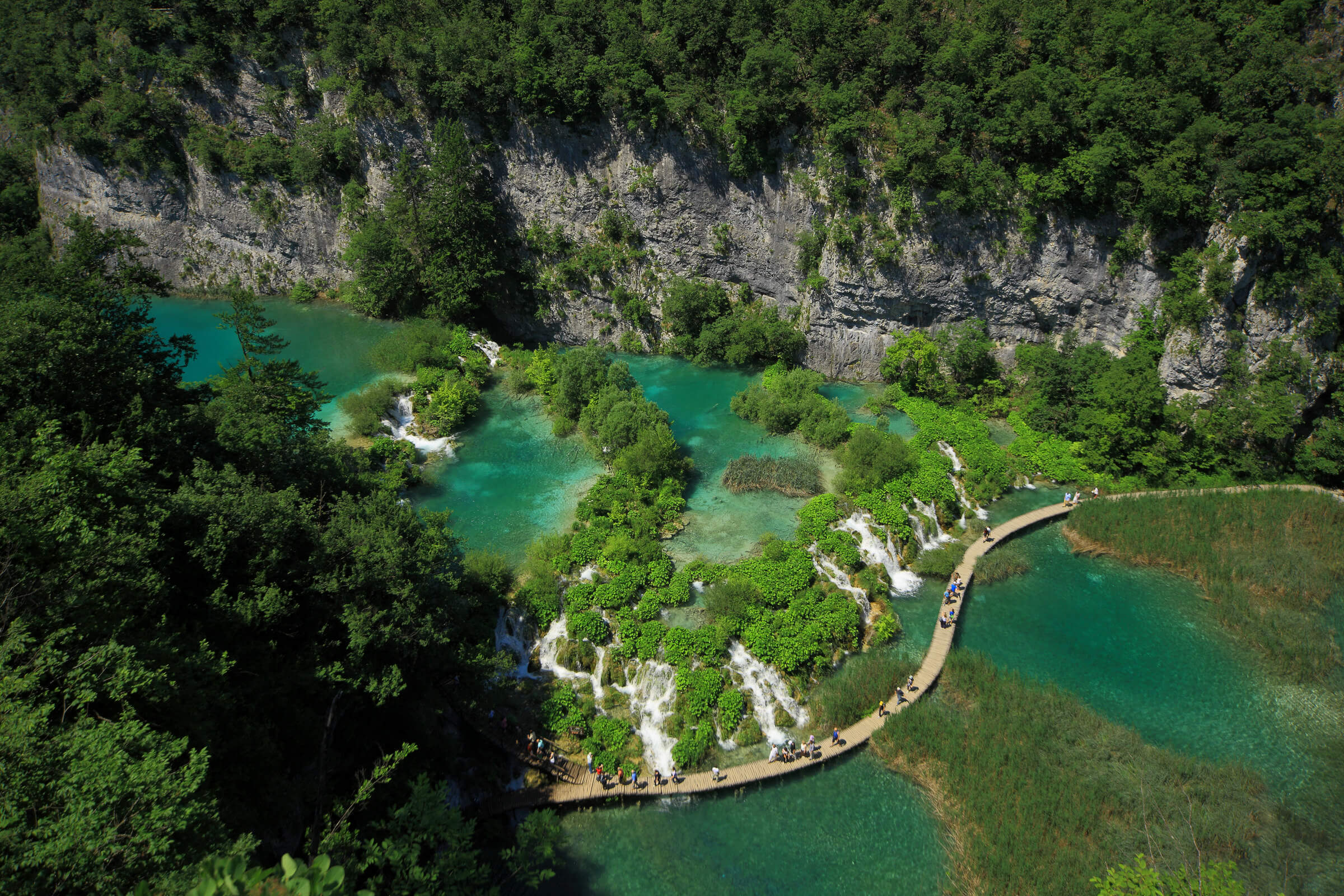
Plitvice Lakes (Photo: Mario Romulić)
The lack of promotion of the historically known and significant area of the Republic of Croatia, the municipality of Udbina, or medieval Krbava, would change with this project and the destination would get a historically and religiously significant role than it has so far. Udbina with its position, historical and cultural significance, religious tourism and natural features, and well-known eco production can greatly contribute to the development of a common tourist destination in the marketing activities ahead, complete the tourist offer, and to the satisfaction of tourists visiting us.
The Croatian tourist collaboration between the three tourist boards will be able to work better on the development of the tourist product and promotional activities of Lika as a character and define the tourist brand of the destination or micro-region as a whole.
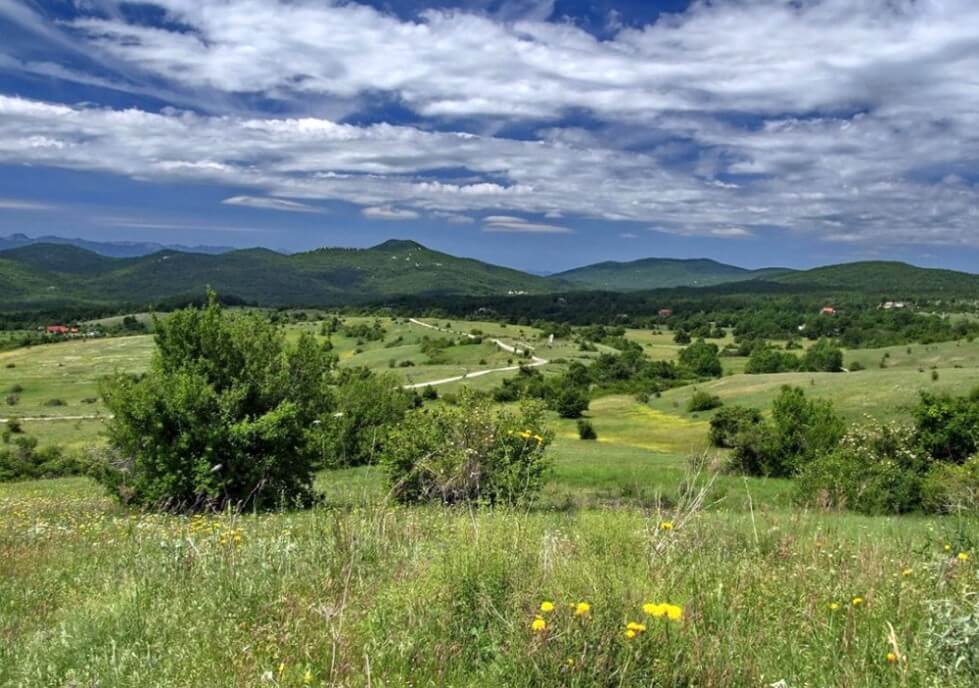
Udbina (Photo: Lika Tourist Board website)
The development of a diverse offer and the generation of demand is a prerequisite for year-round tourism, which tourist boards strive for and which must ensure stability and a much more significant impact of tourism on the entire economy. Through year-round tourism, moving away from seasonality, and offering a quality and recognizable product throughout the year, you can conjure up everything that rural destinations have to offer. The aim is to provide visitors with useful and interesting information about the tourist offer of the destination and to show the attractiveness of the destination. In this way, new visitors will be attracted and the destination will be positioned on the tourist market while building the image of the destination as safe, which offers a diverse offer, and keeping this recognizability as a permanent trademark.
Tourist boards are facing the definition of potential future resources, product inventory, and programs for developing the Outdoor offer.
For more on what to do and how to get to Plitvice, check out our dedicated Total Croatia page HERE. Also, visit our 2021 guide on all Croatian National and Natural Parks HERE. Both now in your language!
Follow the latest on flights to Croatia HERE and the latest travel updates and COVID-19 news from Croatia HERE.
For more on travel in Croatia, follow TCN's dedicated page.
Plitvice Lakes in June: Half Price Tickets for Visitors!
:June 2, 2021 - A new month begins and the Plitvice Lakes in June will have special prices and offers for those who wish to visit the national park in the first weeks of summer
Plitvice Lakes National Park continues to offer reduced ticket prices in June, reports turistickeprice.hr. This time the price of a single ticket for adults is 150 kuna, which is, considering the usual June ticket price, a 50% discount. The individual price for students is 70 instead of 200 kuna, and for children from 7 to 18 years 35 instead of 120 kuna.
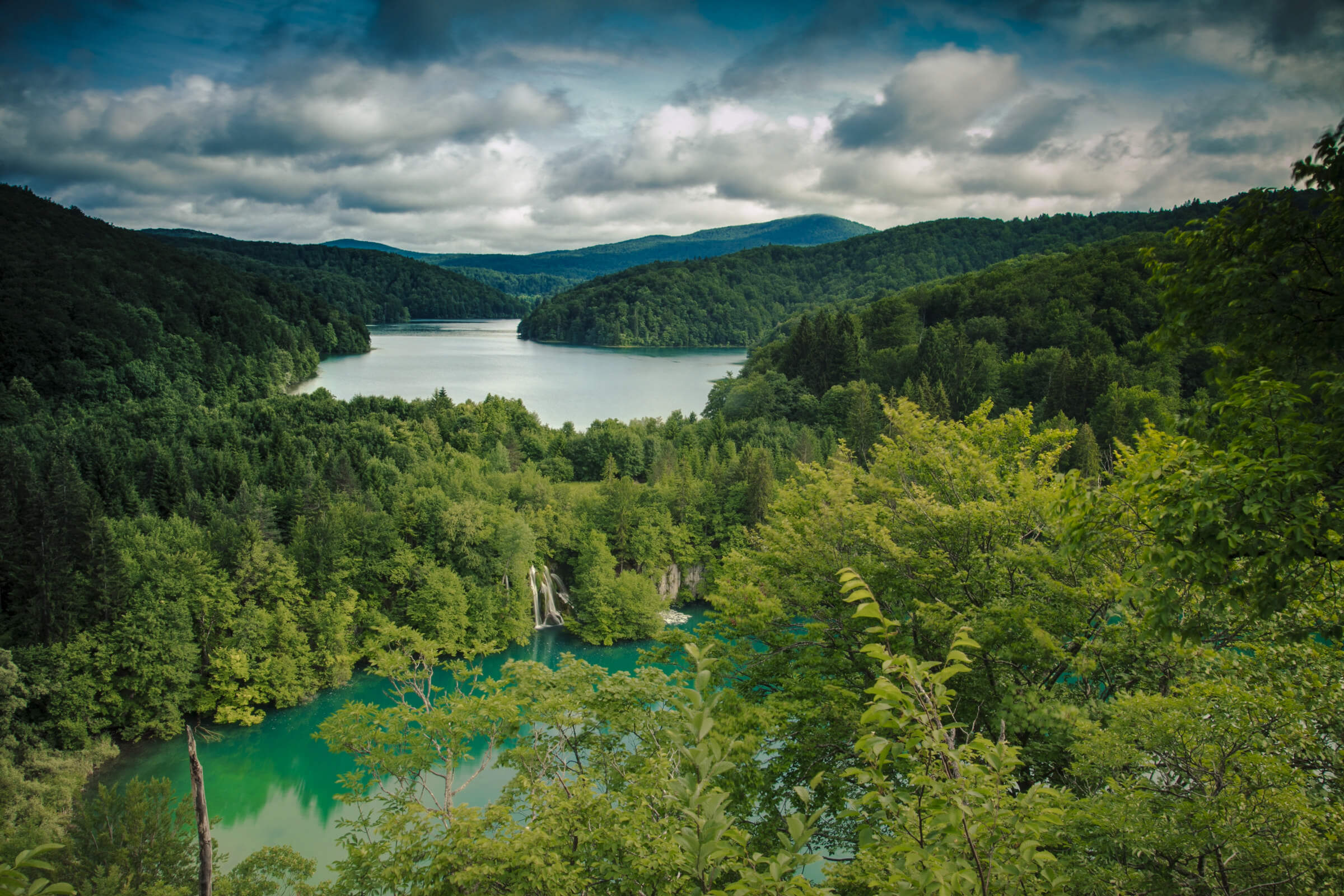
Plitvice Lakes (Photo: Mario Romulić)
Two-day ticket prices have also been reduced. For adults, they amount to 230 kuna in June, for students 110 kuna, and for children from 7 to 18 years, 60 kuna.
For those visiting Plitvice Lakes in June, until the end of the month, Hotel Jezero offers packages of two or three nights with half board service, a ticket to the Park, and an hour of renting a rowing boat to explore the corners of Plitvice's largest lake Kozjak. The June offer also includes two or three nights in the bungalows of the Korana camp, with BB or HB service and a ticket to the Plitvice Lakes National Park.
In addition, there are discounts on an hour of renting a rowing boat on Lake Kozjak, riding tours on the Terra ranch, the services of the Adrenaline Park Plitvice, and discounts on lunch or dinner in the restaurant of Camp Korana, if you choose bed and breakfast. For all of you who decide to stay for three nights, with all the above discounts, the package includes a ticket to Barać's caves, while an hour of renting a rowing boat on Lake Kozjak and renting Nordic walking poles are free.
The rich gastronomic offer of the Park is even richer than on May 28, when the restaurant Lička kuća was reopened, which offers autochthonous dishes in an autochthonous ambiance. There is also the Vučnica bistro, which is located two kilometers from the southern entrance to the National Park. Let's say that the restaurant of the Jezero hotel is offering menus at promo prices until the end of June.
The offer for Plitvice Lakes in June, which also includes discounts for Croatian Tourist Card owners, the entire gastronomic offer of the Park, and an overview of everything you can visit near the Plitvice Lakes National Park can be found on the official website of the Park.
For more on what to do and how to get to Plitvice, check out our dedicated Total Croatia page HERE. Also, visit our 2021 guide on all Croatian National and Natural Parks HERE. Both now in your language!
Follow the latest on flights to Croatia HERE and the latest travel updates and COVID-19 news from Croatia HERE.
For more on travel in Croatia, follow TCN's dedicated page.
Plitvice Lakes Offers to be Ready for Visitors in May!
April 21, 2021 - Those interested in visiting one of the most beautiful national parks in the world will be able to, as great Plitvice Lakes offers have been announced for May.
Known for their magic during the four seasons of the year, the Plitvice Lakes offer their visitors dreamlike settings. From trees covered in snow in the winter that contrast with the turquoise color of the lakes, to a powerful combination of greens and blues in the summer, it is always a great time to visit one of the most popular national parks in the world.
And the month of May should not be an exception because, in addition to being in full bloom during spring, Plitvice Lakes offers include not only better prices to visit the natural attractions, but also to enjoy the best amenities and activities in the National Park.
Plitvice Lakes National Park through seasons (Plitvice Lakes channel)
As turistickeprice.hr reports, after lowering the prices of tickets and certain services in April, the Plitvice Lakes National Park announced that all visitors will be able to enjoy the spring magic of the Park in May as well. Thus, the April reduced prices will remain next month. This means that a single ticket for adults will still be 80 kuna. Let us remind you that the full price in this part of the year is 180 kuna, which is a discount of more than 80%. Other special prices from April remain the same. Students will pay 50 kuna instead of 110 kuna, and children from 7 to 18 years 35 kuna, instead of 50. Two-day ticket prices have been reduced, and will be 120 kuna for adults, 70 kuna for students and 60 kuna for children.
Spring packages are on offer at the Jezero Hotel, located in the heart of the Plitvice Lakes National Park, until the end of June. They include two or three nights with half board, a ticket to the Park, and an hour of renting a rowing boat to explore the corners of Plitvice's largest lake Kozjak. But Plitvice Lakes offers even more to their visitors in May.
For example, until June 30, at a price of 750 kuna per person, they offer two nights with breakfast, a ticket to the National Park for the entire stay, as well as a 50% discount on a one-hour rental of a rowing boat on Lake Kozjak. In addition, take advantage of a 20% discount on lunch or dinner at the Vučnica bistro, a 20% discount on the use of the Finnish sauna in the hotel, a 20% discount on RELAX massage in the Fors Fortis salon, a 15% discount on the ticket price to Barać's Caves, a 15% discount on prices of services at Ranch Equus Igni.
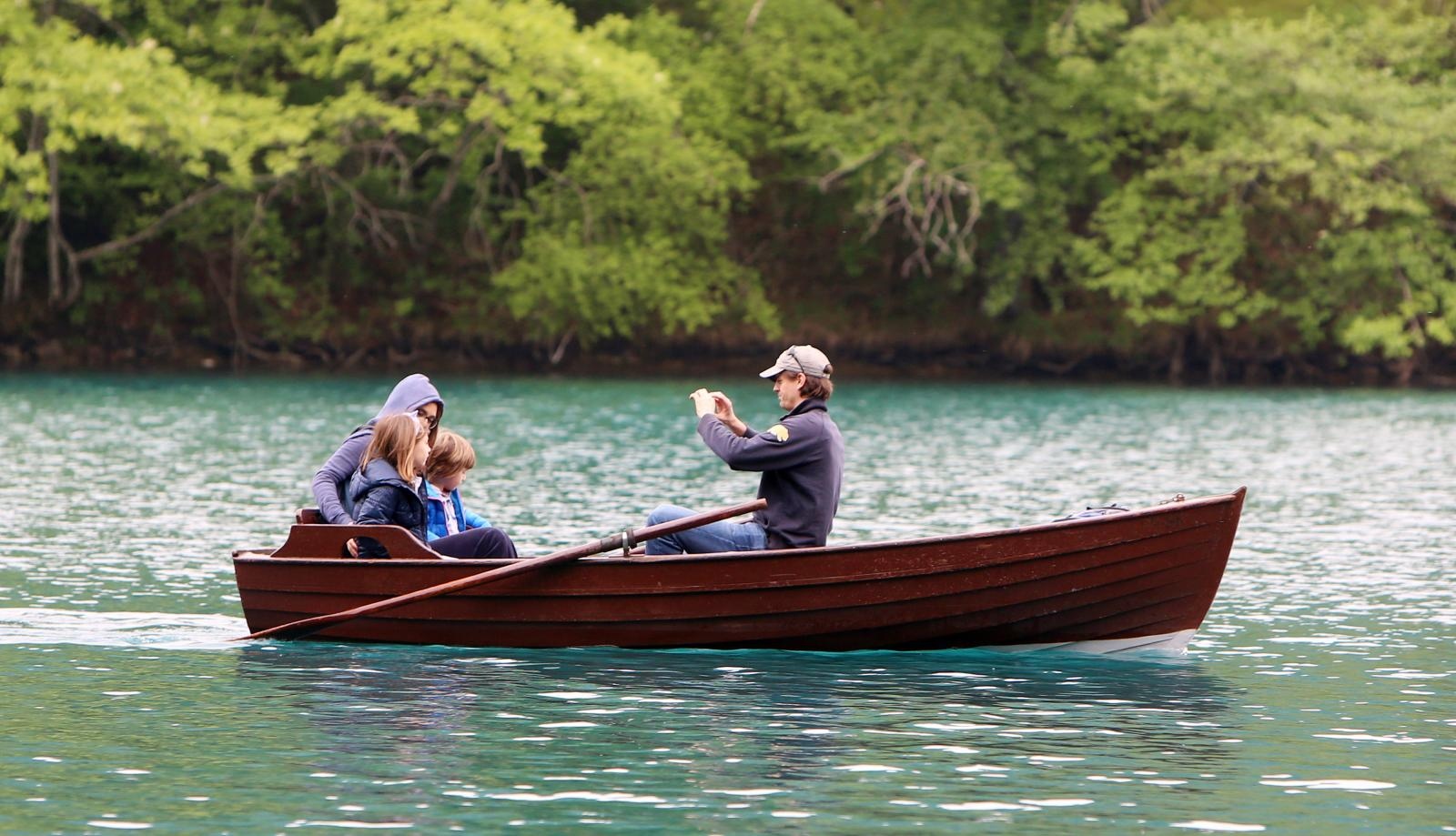
See the entire offer for May, which also includes discounts for Croatian Tourist Cardholders, the Park's gastronomic offer, and a picnic lunch for Labor Day in the Plitvice Lakes National Park on the official website of the Park.
For more about the nature and national parks in Croatia, be sure to check our Total Croatia 2021 guide to all of them HERE.
For more news about travel in Croatia, follow our dedicated page.
International Poetry Day Croatia: Non-Croatian Poets about Croatia
March 21, 2021 - In honour of International Poetry Day Croatia, TCN's Ivor Kruljac met with non-Croatia poets to share their views on Croatia through their art.
Since 1999 and the 30th General conference of UNESCO, March 21 is recognized as International Poetry Day. As said by the United Nations official website, the date was dedicated to poetry to celebrate „one of humanity’s most treasured forms of cultural and linguistic expression and identity“, which history remembers practiced in every culture on every continent.
„Poetry reaffirms our common humanity by revealing to us that individuals, everywhere in the world, share the same questions and feelings“, states the UN.
Supporting linguistic diversity and an opportunity of endangered languages to be heard within their communities along with encouragement to bring back the oral tradition of recitals, the promotion of poetry teachings and poetry in the media, as well as connecting this ancient art form with other art forms such as music, painting, and theatre, are all goals of the International Poetry Day. And here at TCN, we want to do our part and connect poetry with what we always struggle to report on: Showing all aspects of Croatia.
To the fans of contemporary poetry, it's no secret that poets today are very much alive, productive, and regularly present their work. If not in books then at poetry events, open-mics, and on social networks – either from their private accounts, blogs, or in groups dedicated to this wordy-art.
We asked non-Croatian poets through social networks and private group chats dedicated to poetry who either visited Croatia or know about Croatia to send us poems about Croatia with a promise that the top 5 will be published and authors presented. Now, to be fair, while the author of this article is a poet, that is far from being a legitimate poetry critic and the rest of the TCN's editorial team (at least to public knowledge) aren't even poets. The idea was to pick the poems based on how it resonates with us as individuals who gave the art a chance. The academic acknowledgment is nice, but resonating with the audience, the everyday people, should be the goal of any art publically displayed, right?
To be honest, there wasn't really any competition as, by the end of the deadline, we received only four poems. Nonetheless, the beauty of these poems and great resonation with TCN was there and we are happy to publish these poems and ranked them, from fourth place to the very best. You can decide for yourselves which poem you like best (and the messages you see in their work), but here the four poems that „knocked on the doors of our mailbox“ (metaphorically, quite poetically, speaking).
#4: „Croatia“ by Jesus McFridge
Poets such as Charles Bukowski and Walt Whitman are very well known by their name, but just as in many other arts, poets are no exception in sometimes preferring to use pseudonyms to present their work while keeping their identity unknown and privacy secured. Such is the author that goes by the name of Jesus Mcfridge. Quite active in a Facebook group Poetry Criticism For Cool Cats, he revealed in his application that he is from California and described himself as a „24-year-old American that watches too much television“. He added that his knowledge of Croatia is limited to the country at the 2018 FIFA World Cup, but he has fallen in love with the Croatia national football team's checkered uniforms. Despite never visiting Croatia, after „Croatia's tragic loss in the 2018 World Cup final“, he found himself also crying just as many Croatians did.
„In this poem, I have attempted to capture the feeling of this tragic loss that we have shared together, despite the vast seas that separate us“ concluded Mcfridge in his application.
His bittersweet poem simply titled „Croatia“ indeed brings some painful memories but presented in a short and funny way allows us to look at the past in a brighter way, bring back smiles, and give us the strength to cheer for our Croatia national team as they prepare for the next trophy hunt.
Croatia
They
Almost won
The world cup
But
Mandzukic scored
An own goal.

Jesus Mcfridge © Jesus Mcfridge
#3 „Daniela's song“ by Christian Sinicco (English translation by Daniela Sartogo)
Christian Sinicco was born in Trieste, Italy, and his poetry is published in various anthologies and magazines and an editor of the magazine Argo with which he has dealt with the widest overview of poetry in the Italian dialect from 2000 to the present day. He published three books of poetry: „Passando per New York“ (Lietocolle, 2005), „Ballate di Lagosta“ (CFR, 2014) and „Città esplosa“ (Galerie Bordas, 2017). He won the first Italian Slam Poetry Championship and served as the president of the slam poetry association LIPS - Lega Italiana Poetry Slam (2013-2014) and is the current vice president of Poiéin. He is also active in a global initiative of slam poets organizing the world slam championship which early results can be followed on Twitch.
He participated in numerous book festivals including four festivals in Croatia: Zagreb Contemporary Poetry Festival, Forum Tomizza (in Umag), Pula Book Fair, and Rijeka Book Fair.
His second book of poetry „Ballate di Lagosta“, translates as Lastovo Ballads and it's actually a preview while Sinicco plans to soon publish the full book dedicated to this beautiful Croatian island on the southern coast.
„I was on Lastovo several times. I know a poet from there, Marijana Šutić and I spent a vacation there with other poets such as Ivan Šamija and Silvestar Vrljić“, said Sinicco in his application where he offered a poem from „Lastovo ballads“ which already seen its presentation on a prestigious literary site Versopolis.
„Daniela's Song“ may not bring out the most visual and most explicit Croatian motives, but the discrete and specific localization of Croatia is there all wrapped in a love poem to touch the heart and help us remember the summer sweethearts and romance in Croatia.
Daniela's song
I.
She talks about how beautiful it is without knowing where to go
perhaps into the water of the sun like her cheek
simply necessary as the wet dream
in a wider galaxy if it can be understood,
she seduces you through valleys and dusty vineyards
with eyes towards the bay with the waterfall:
Za Barje the sign said, and so also barked the dog tied
under the cypress – his teethed mouth was the buried reason
the fishermen had left him there – near a house
covered with ivy and blackberries, in which had grown
an apple tree with sour fruits and roses
that only you will taste:
avoiding the asphalt and dirt road holes you followed Daniela
targeting yourself and the asphyxia of your life
that follows the path to erect the intelligence of the species
that on the concept of work has built its republic of theft,
then you saw her dancing on the beach between the warm rocks
and the boat pulled out of the lobster pot, the fishermen are back:
good and evil are triangles of waves that spread
on the sea towards the two islands where we swam
– the fish are not aware of it,
and so the man under the pine and his child
with the mask, another fisherman with the fishing line,
only you maybe on the petals you bite as the words
II.
after quite a while we are outdoors and eat figs
at dusk time on this meadow
sliced on the wooden bowl,
we take the bread and tear it many times
because paradise is close to the fire
and the village to our left rises white in pink
made with scales like the barracuda
Korčula has no intention to leave our sight
I shouted as my usual self
you lit the candle and made me notice
we are not alone, but you can stay calm
slowly also the hut
and its fire have become attractive
calming the natural tension
of a darkening sky, not preventing us
from tasting the happiness
of a grilled fish, of tomato and capers
you are attractive when you smile
with a glass of water on the lips
too quietly they get up,
wanting to be born in the response they seek outside
the people at the tables next to us, and from the cottage
where they grill they come to clear up
a woman and the cook, as in a ceremonial
we ask for the check with the hands
they will be intertwined when we emerge from the field
toward the parking lot where we’ll get in the car
and head out to the highest point
of a series of bends, before descending to the valley
the vault of stars surprises us
we stop everything, propped on pillows of a land
that is still hot, we’re sure
that the star will fall, and it comes true
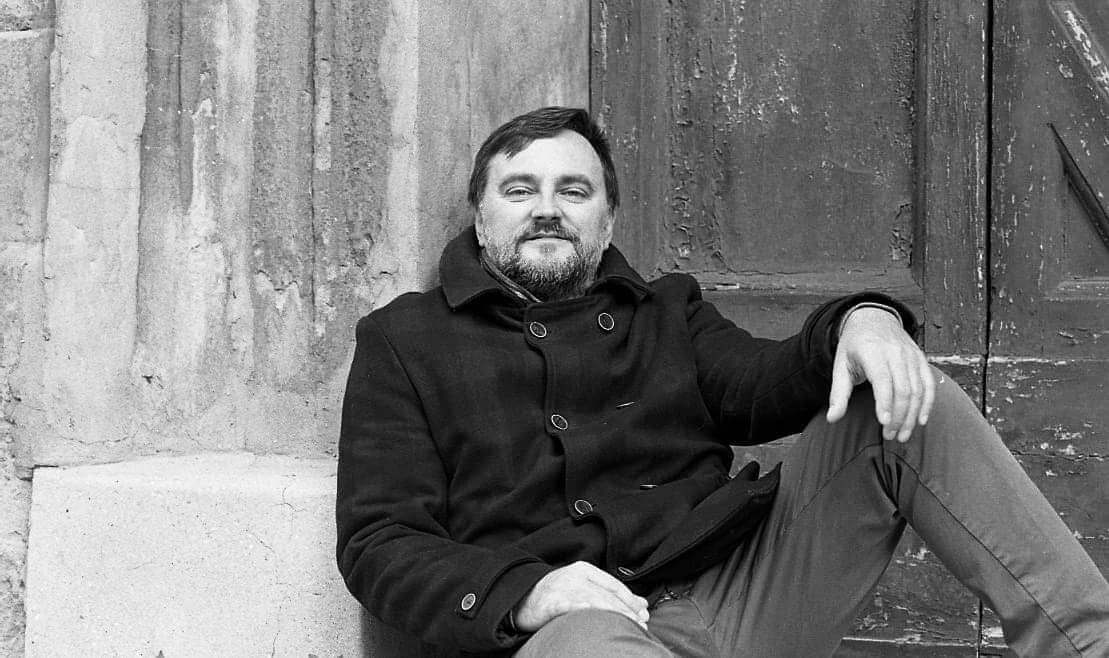
Christian Sinicco © Daniele Ferroni
#2 „The Lakes of Plitvice“ by Vanni Schiavoni (English translation by Graziella Sidoli)
Born in Manduria, Italy, but living in Bologna, Vanni Schiavoni published five poem collections: "Nocte" (1996), "The Suspended Balcony" (1998), "Of Humid and Days" (2004), "Salentitude" (2006), and "Walnut Shell" (2012). He also published two novels "Like Elephants in Indonesia" (2001) and "Mavi" (2019) and edited the poetic anthology "Red - between eroticism and holiness" (2010). Most recently, he also published poetical plaquette „Croatian Notebook“ which features twelve poems dedicated to six Croatian sites: Plitvice Lakes, Kornati, Šibenik, Trogir, Split, and Dubrovnik. Schiavoni wrote the "Croatian Notebook" after a week-long journey in the summer of 2017. His birthplace Manduria is located in the region of Puglia which is 30 miles away from the Pelagosa (Palagruža), the most distant Croatian island, and his surname originates from the name of the Slavonia region in Eastern Croatia.
„For me, it was not just a holiday trip but a journey in and out of everything that I am, a travel diary through which to bring out the game of mirrors between me and that place, between what I am and where I come from and what I have encountered“, said Schiavoni. This journey impacted him with images of the signs of Italy engraved in stone, mournings of the war, communist history („most heretical Communist party in the east in front of the largest Communist Party in the west“, as Schiavoni puts it) and as he added, „the same Adriatic Sea which gives both of us fishes and earthquakes“.
His poem „The Lakes of Plitvice“ is a lovely description of the mixture, the game, and visual eye-candy of the waters in Croatia's oldest National Park, and it linked with a search for bravery and the encouraging point that good and beauty can defeat evil and change it to something better.
THE LAKES OF PLITVICE
The first day they always plunge down into the same spot
the river rapids that come to the encountering
of the white river with the black river
and the more we think ourselves ready with our shrewd eyes
the fewer the adjectives made available to us before that wonder:
the green rush pushes our pupils towards a wild frenzy
it pushes them inside the tearful torrents by our feet
in the shrouded darkness of the sequential caves
and in the vertical caverns sculpted
as if by a hand capable of it all.
Yet Judas must have passed by this place
and though perhaps not the one with burning lips
a simple Judas must have become lost
in this mysterious grid of remorse.
These lakes fall into lakes as lashings on yielding branches
they flow into other waters and so they rain
endlessly
and perfectly untouched.
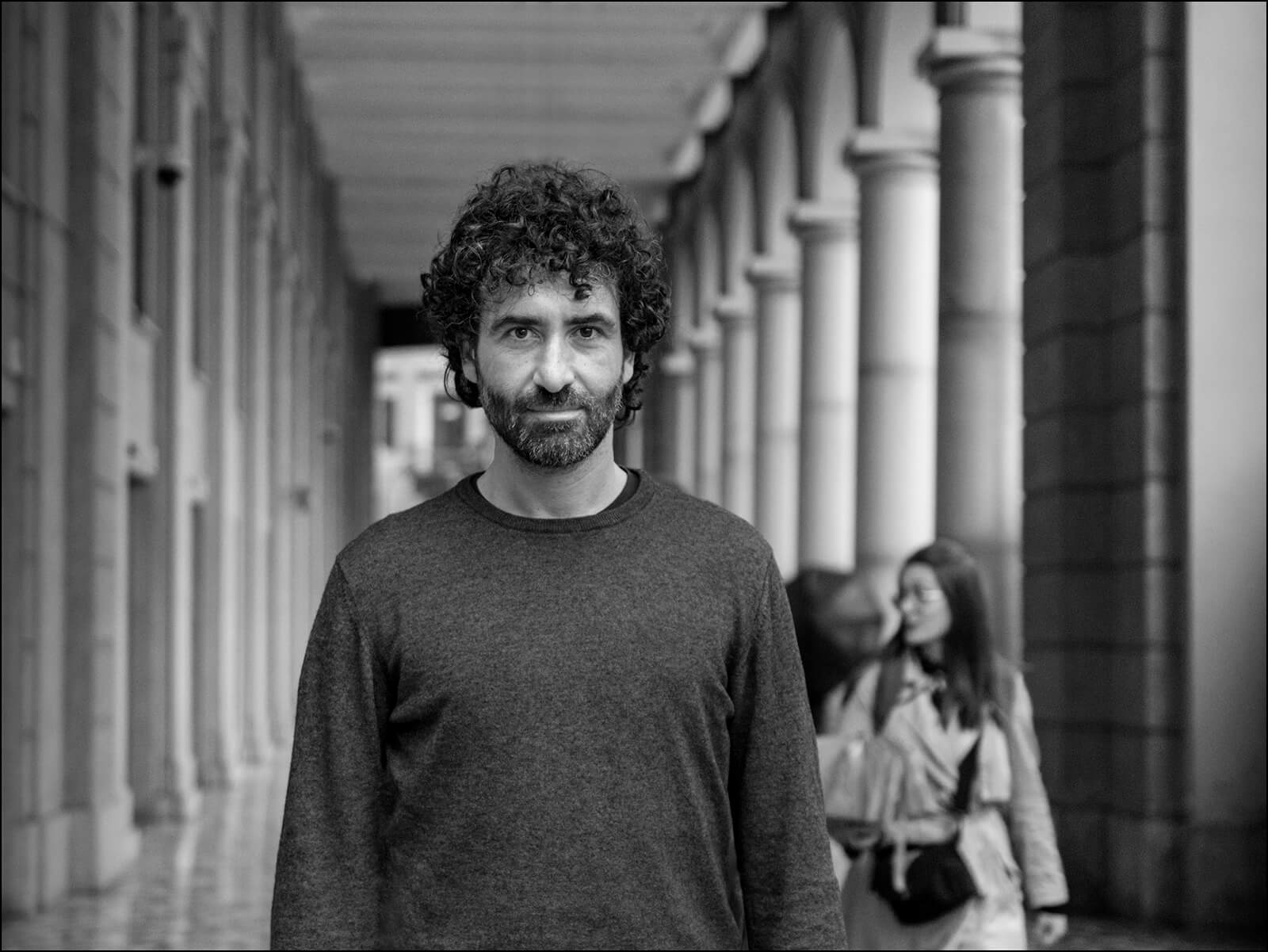
Vanni Schiavoni © Dino Igmani
#1 „Dubrovnik Rock“ by William Vastarella
After Schiavoni and Sinicco, our first-ranked poet is the conclusive evidence there is something so incredible about Croatia it really inspires poetically-inclined neighbors across the Adriatic. Born in Napoli in 1974, William Vastarella is a teacher of Italian Literature, geography, and History. He's has a Ph.D. in semiotics from the University of Bari and writes for several literary and cultural magazines in Italy. He also edited several poetry anthologies as well as semiotic essays. Vastarella visited Croatia several years ago and had a cultural and relaxing holiday on the seaside. „I found her so full of the Mediterranean spirit that I wrote a poem in Italian. I tried to translate it in other words, trying to leave intact the sounds of that memory“, said Vastarella about his poem on Dubrovnik.
The poem „Dubrovnik Rock“ is fantastic in the way, Vastarella visually invokes the images from the history of Dubrovnik (Ragusa) Republic and the relationship it had with Italians at that age with the waves of the Adriatic Sea as the link between Italy and Dubrovnik but also between past and present.
Dubrovnik Rock
Other singers claim to feel
singular vibes in the waves
Nearby this shore,
and so do I.
Ragusa, Dubrovnik
A name is not enough
To trap a soul.
I ask myself
Who’s the other side
Of the other side
As the seawater shuffles.
I touch with my finger
and now I know it’s real
the steel and the wood of the boat
powerful works of man
that wipe out weapons
and I ask no more.
I realize
we have been both
pirates and emperors
centurions and barbarians
through the centuries
each one to the other
a flurry flow
of slavers and Slavs,
slayers and saviors.
Sometimes when the north wind blows,
melting the white in waves,
painting clouds of amazing blues
mirroring the water in the sky,
space seems to become so narrow,
so easy the neighborhood,
then all
the voices of the ancient age
of an ancient game
of thousands lost
in that spot of time,
that spot of sea,
mutate in a mute roar singing
in which merge the rage of riot
and the call for help of a lot
castled in the rock
waiting for a drop of rain to drink
or friend sails on the horizon.
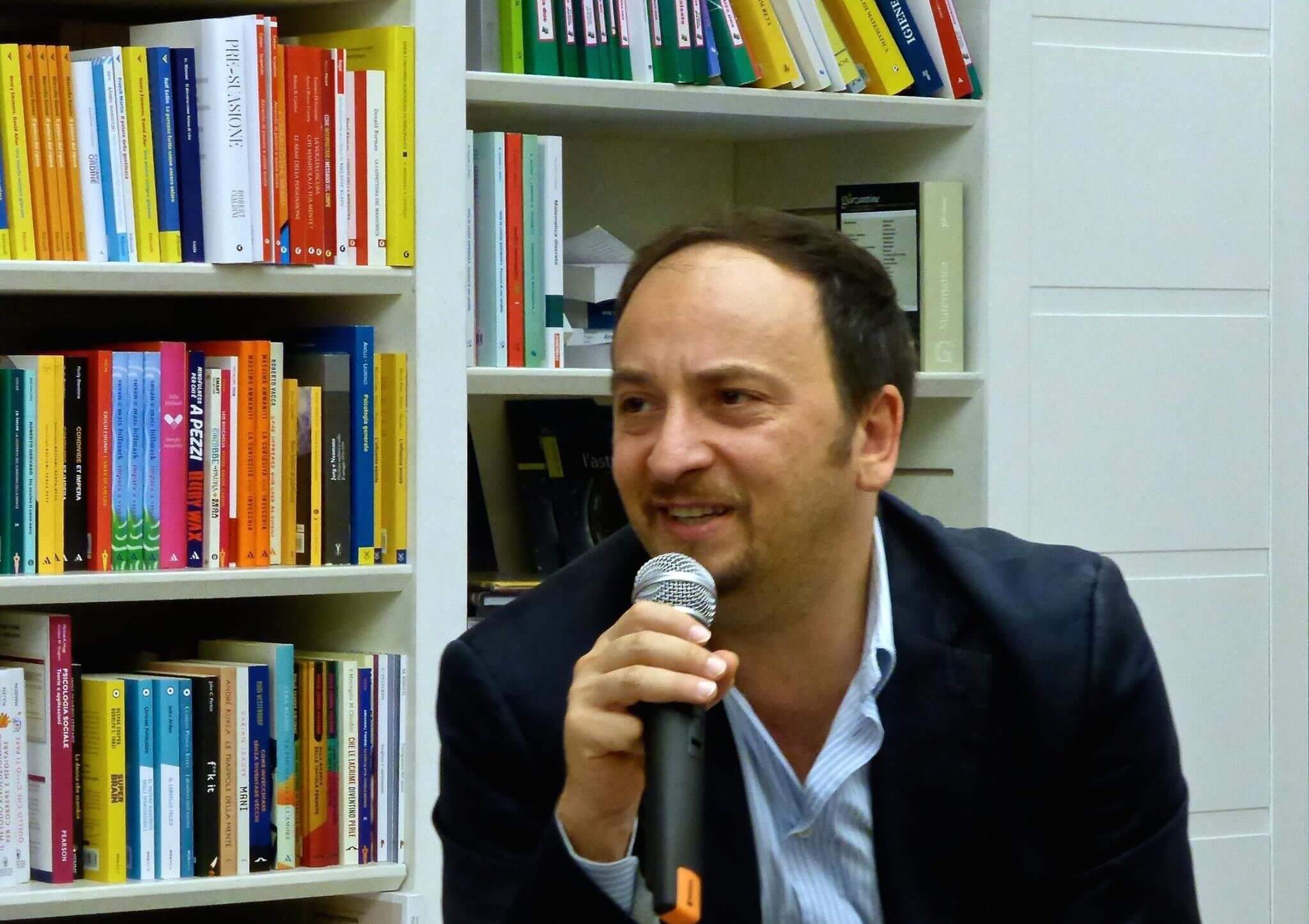
William Vastarella © Vito Signorile
For more about lifestyle in Croatia, follow TCN's dedicated page.
TripAdvisor Named Plitvice Lakes Third Best National Park in Europe
February 8, 2021 – According to TripAdvisor's Traveller's Choice list, Plitvice Lakes National Park took a high place and was declared the third best national park in Europe for 2021.
TripAdvisor compiled a Traveller's Choice list of the top 10 best national parks in Europe for the first time. Croatian most famous national park Plitvice Lakes took third place on the list and thus got another recognition by visitors.
As written on the TripAdvisor webpage, the Plitvice Lakes National Park is impressive in both winter and summer.
"The bubbling, turquoise crystalline pools of Plitvice Lakes National Park comprise one of Croatia's most popular tourist destinations. Just a two-hour drive from Zagreb, the national park offers 50 acres of forest and lake. In winter, it's a wonderland of frozen waterfalls. In summer, the park is lush with greenery. Wooden walkways and hiking trails traverse the porous karst limestone. This World Heritage Site is a veritable wildlife haven, home to everything from birds to boars and even bears," writes TripAdvisor.
Yorkshire Dales National Park in the United Kingdom took first place, and Vatnajokull National Park in Iceland overtook Plitvice Lakes National Park in second place. Check out the full list:
1. Yorkshire Dales National Park, United Kingdom
2. Vatnajokull National Park, Iceland
3. Plitvice Lakes National Park, Croatia
4. Peak District National Park, United Kingdom
5. New Forest National Park Hampshire, United Kingdom
6. Sierra de Grazalema Natural Park, Spain
7. Sierra Nevada National Park, Spain
8. Uludag National Park, Turkey
9. Sierra de Aracena and Picos de Aroche Natural Park, Spain
10. Cilento and Vallo di Diano National Park, Italy
And what do Plitvice Lakes National Park look like right now? Check out at the live video stream.
For the latest travel info, bookmark our main travel info article, which is updated daily.
Read the Croatian Travel Update in your language - now available in 24 languages.
PHOTOS: Epic Croatia Weather Photography Stuns The World
December 20, 2020 – The 13 winners of the incredibly popular World Meteorological Organization annual competition have just been announced, and two fine pieces of Croatia weather photography are among them. These spectacular images of Croatia weather photography show all 9 Croatian photographs which reached the final in 2020 and all 10 Croatian finalists who similarly stunned the global audience in 2019
Croatia weather photography: the two newly announced winners from the 2020 competition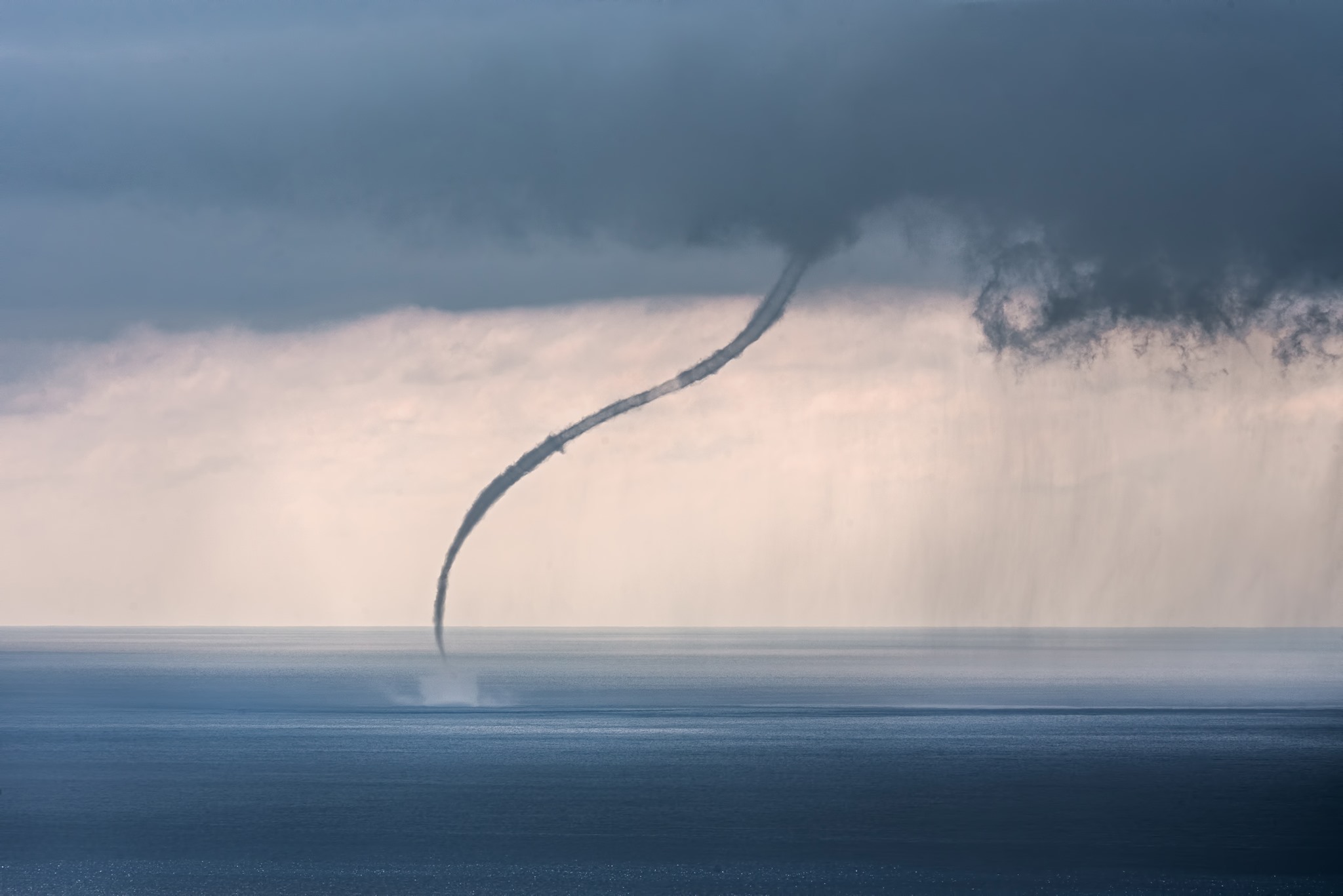 Photographer: Sandro Puncet Photo taken: Losinj island
Photographer: Sandro Puncet Photo taken: Losinj island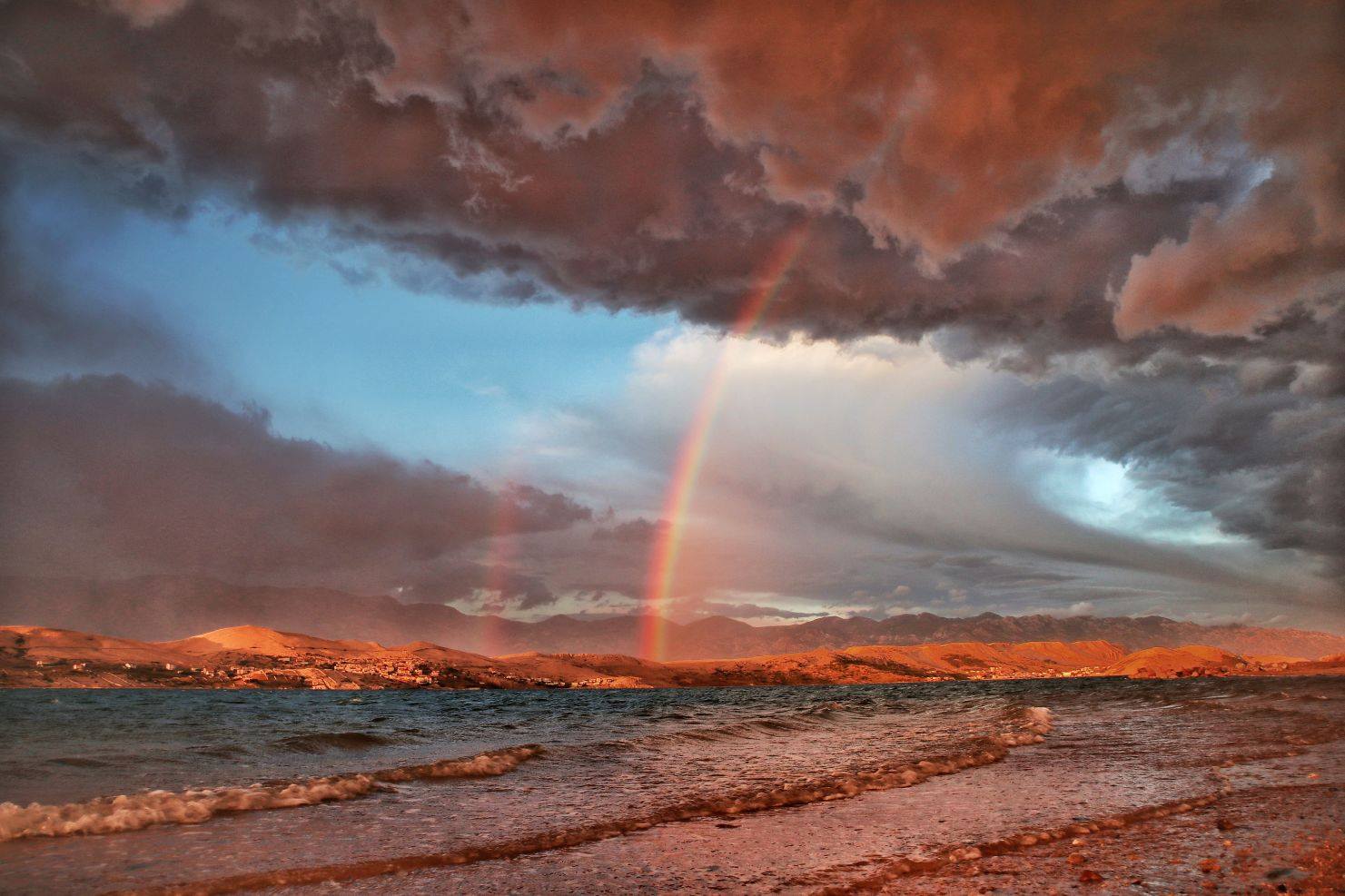 Photographer: Zrinka Balabanic Photo taken: Pag island
Photographer: Zrinka Balabanic Photo taken: Pag island
Thanks to its popularity as a tourist destination, lots of people are now used to seeing beautiful photos of Croatia. Although, the images they usually see are of idyllic beaches, cloudless skies, stunning nature and turquoise blue seas. But, as anyone who knows the country will tell you - and as these photos show - Croatia isn't always like that.
Croatia weather photography: the two newly announced runners-up from the 2020 competition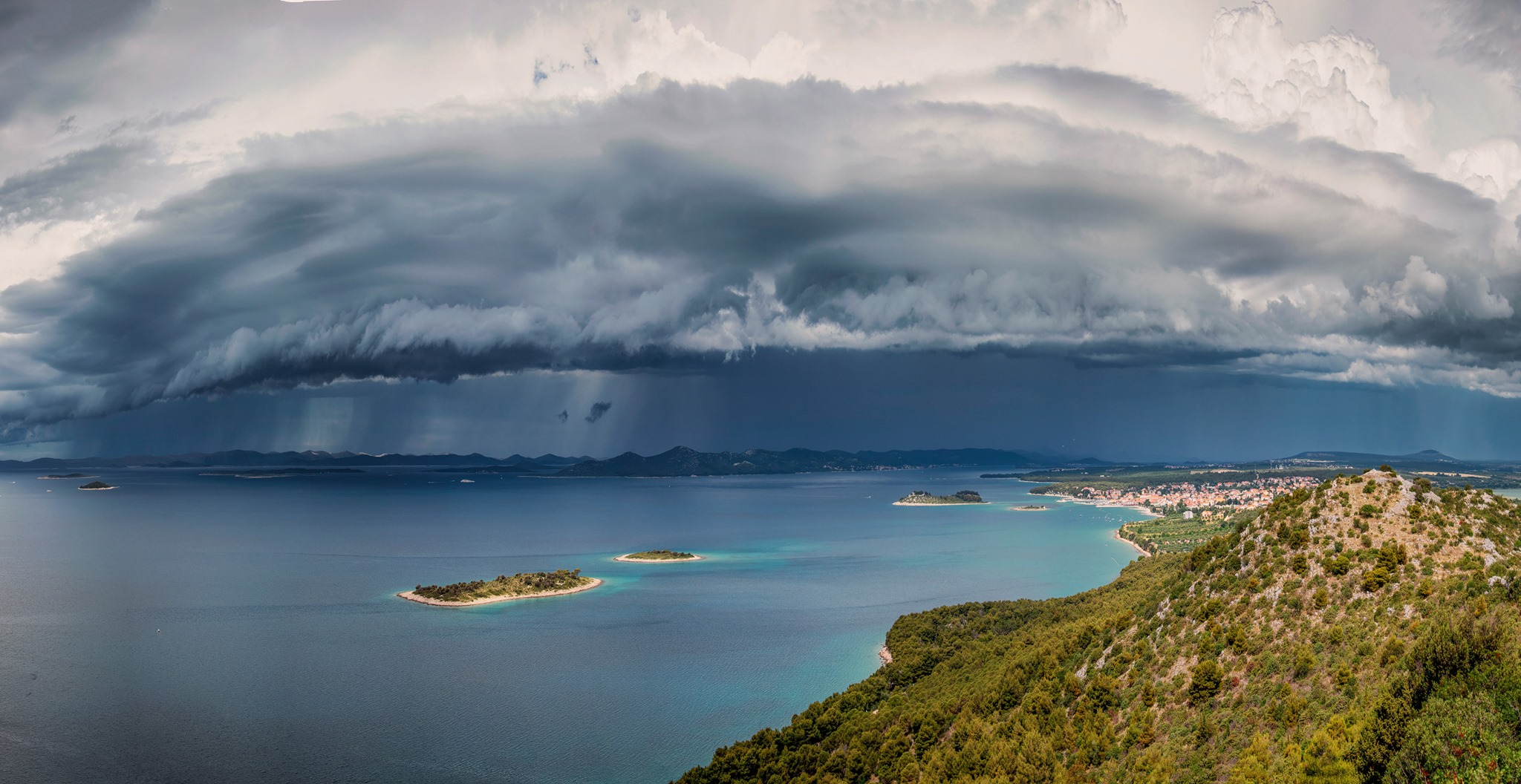 Photographer: Šime Barešić Photo taken: Drage, Pakostane
Photographer: Šime Barešić Photo taken: Drage, Pakostane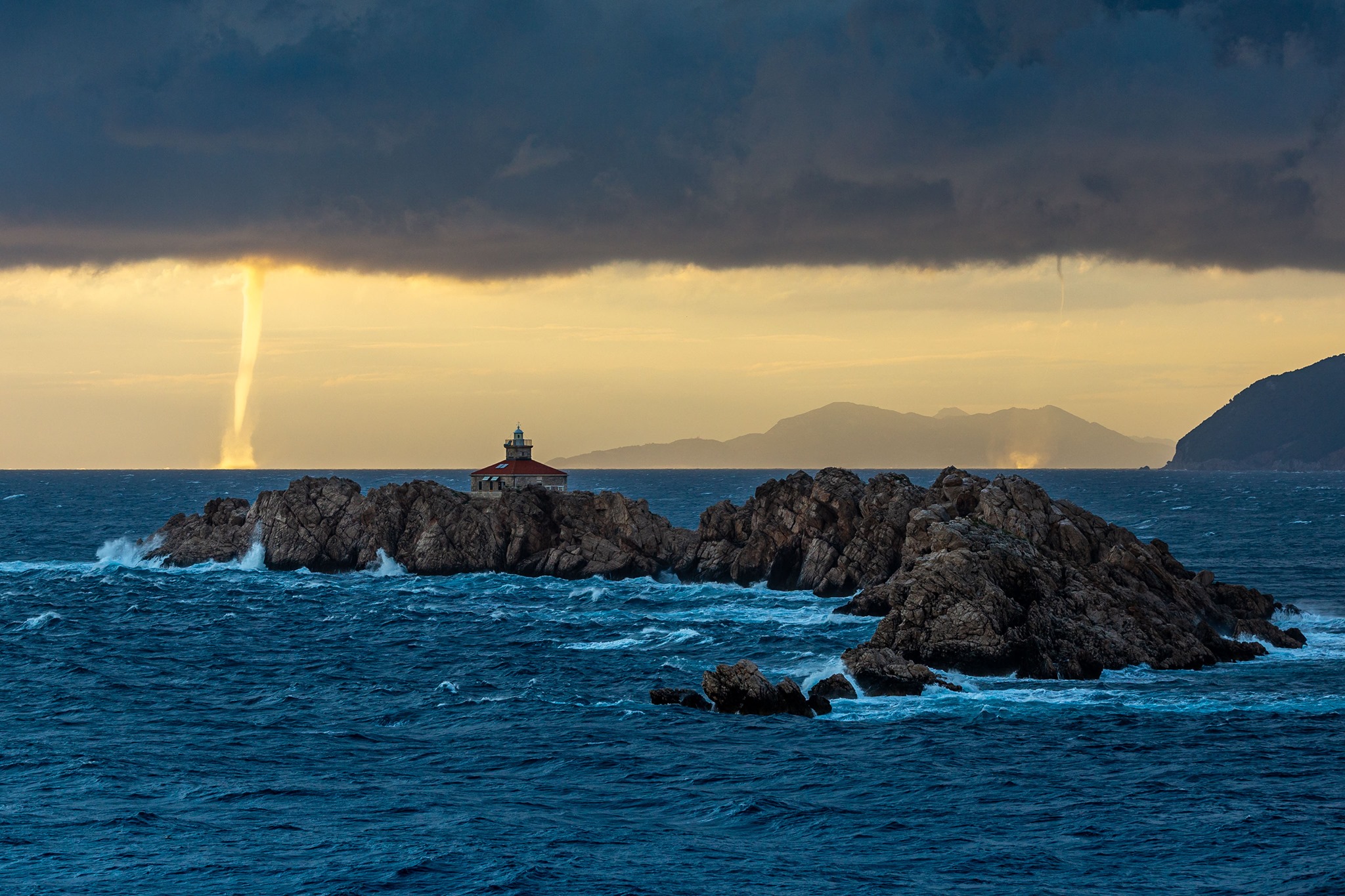 Photographer: Mislav Bilic Photo taken: Lapad Peninsula, Dubrovnik
Photographer: Mislav Bilic Photo taken: Lapad Peninsula, Dubrovnik
Out of season, Croatia can experience vastly different weather conditions to those advertised in travel brochures and blogs. And, whenever there's a spectacular weather occurrence, usually there's a photographer out there, braving the elements, trying to capture it.
Over recent years, some of the best Croatia weather photography has featured in the annual competition organised by the World Meteorological Organization. 2020 has been no different.
The other five Croatian finalists from the 2020 competition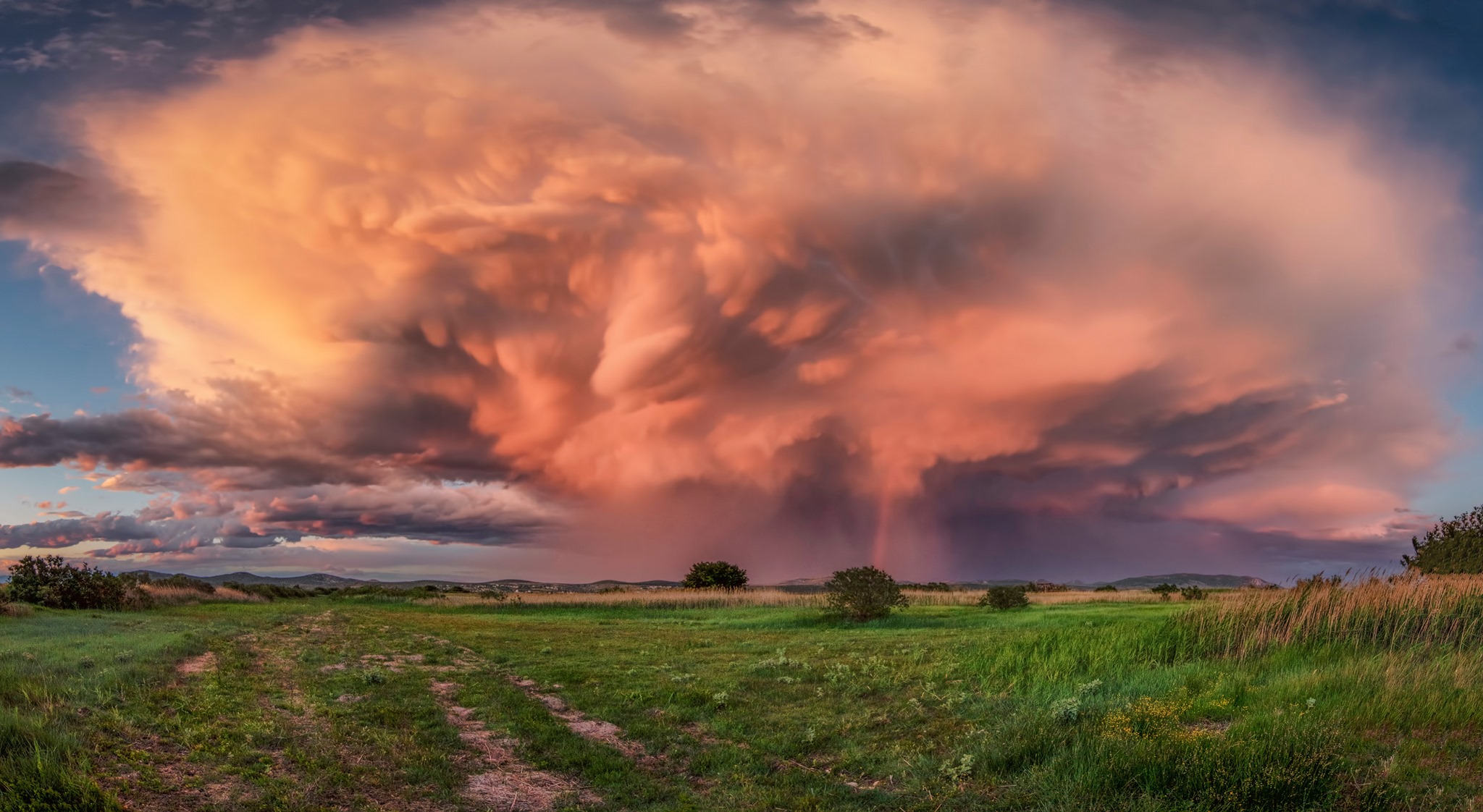 Photographer: Šime Barešić Photo taken: Drage, Pakostane
Photographer: Šime Barešić Photo taken: Drage, Pakostane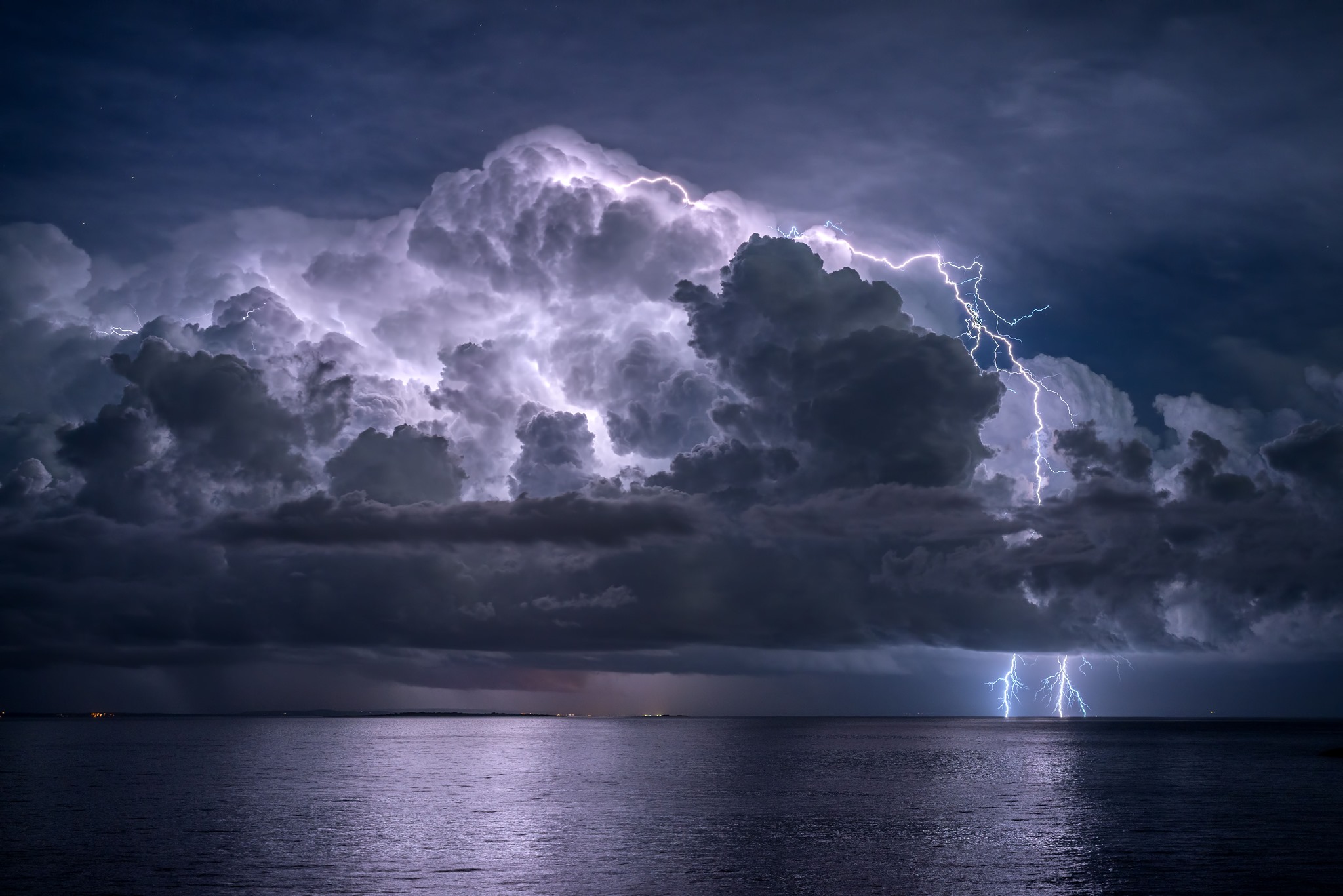 Photographer: Sandro Puncet Photo taken: Losinj island
Photographer: Sandro Puncet Photo taken: Losinj island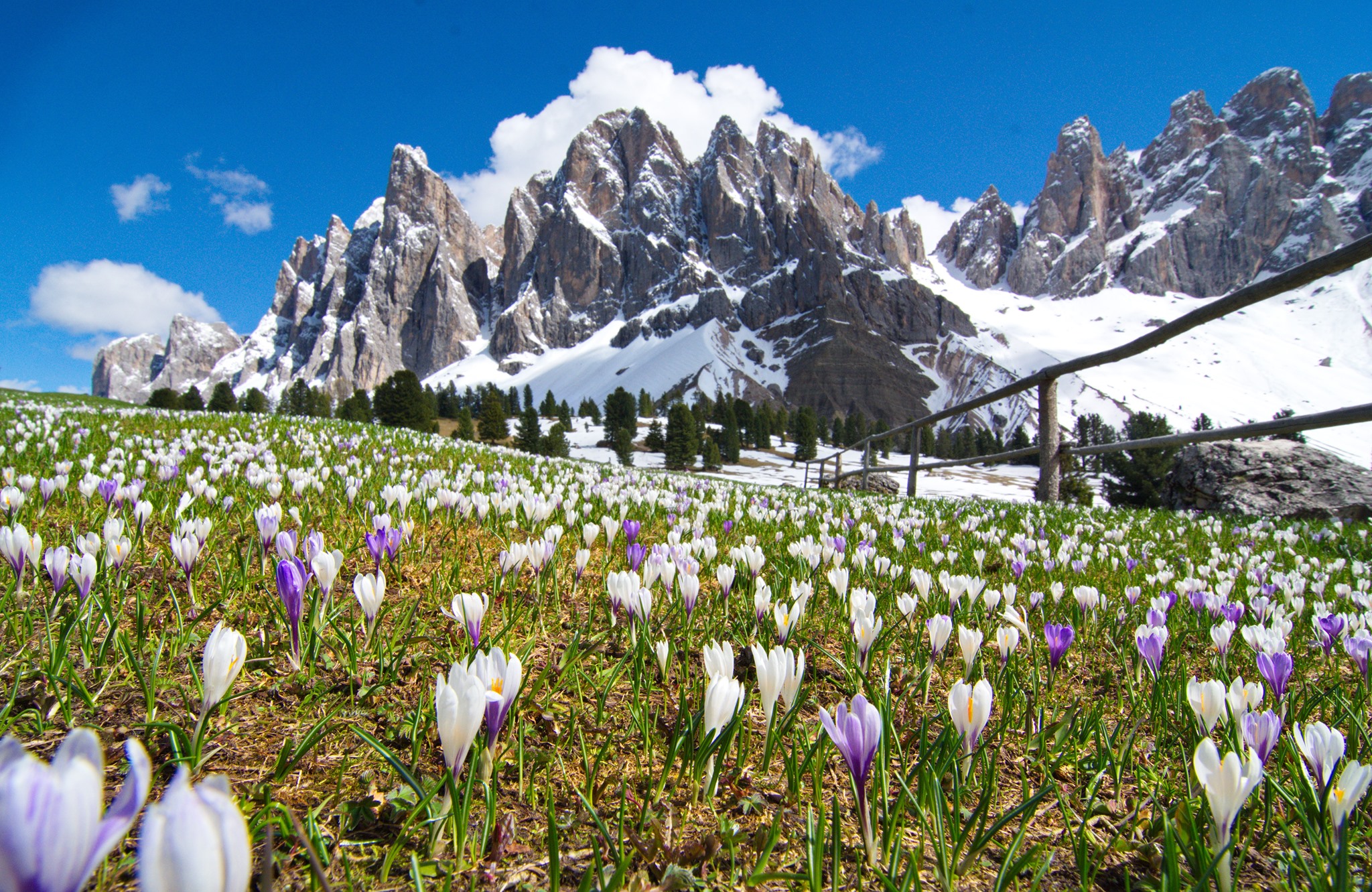 Photographer: Zoran Stanko Photo taken: Geisler Alm, Dolomites, Italy
Photographer: Zoran Stanko Photo taken: Geisler Alm, Dolomites, Italy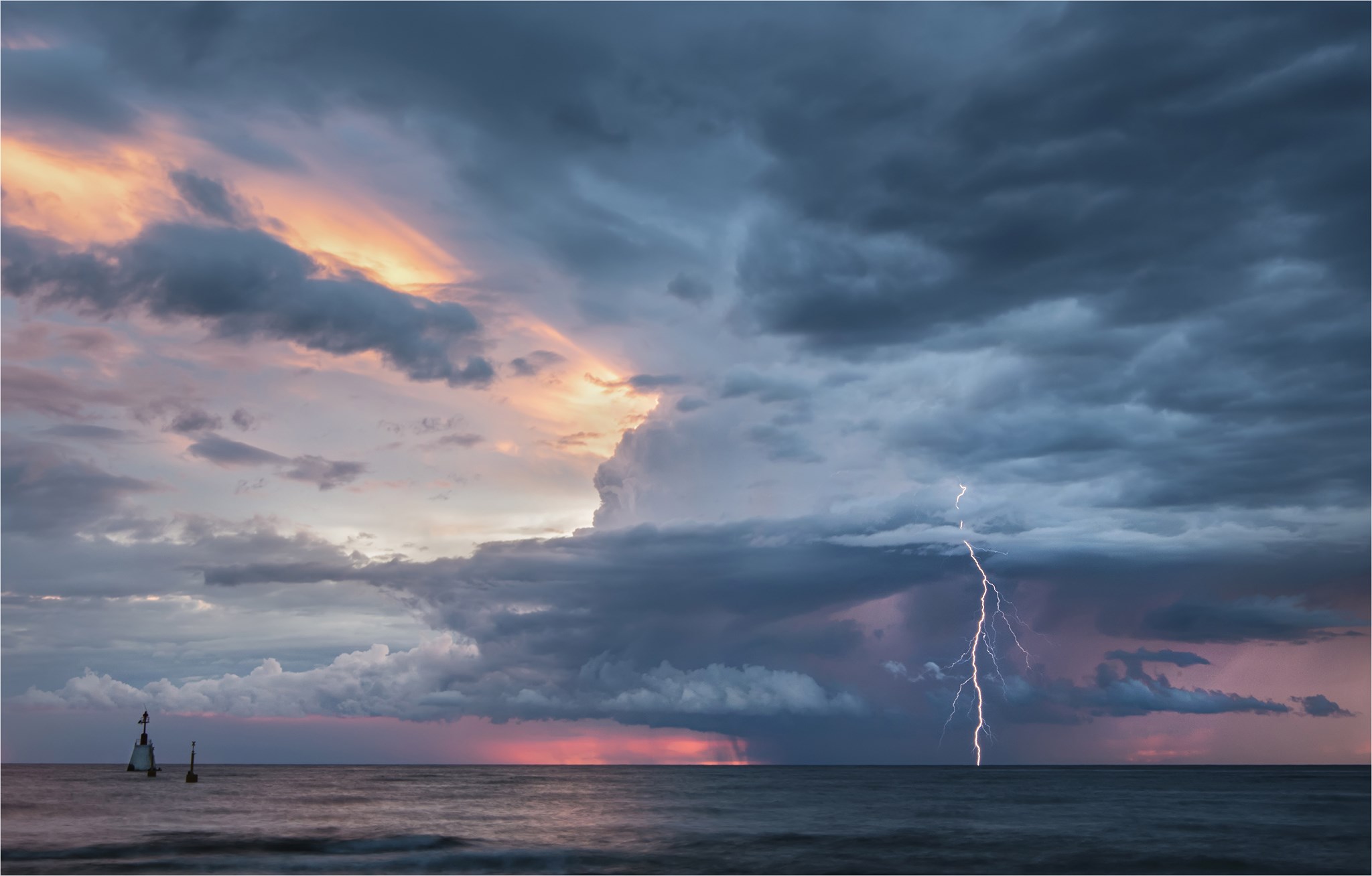 Photographer: Maja Kraljik Photo taken: Umag, Istria
Photographer: Maja Kraljik Photo taken: Umag, Istria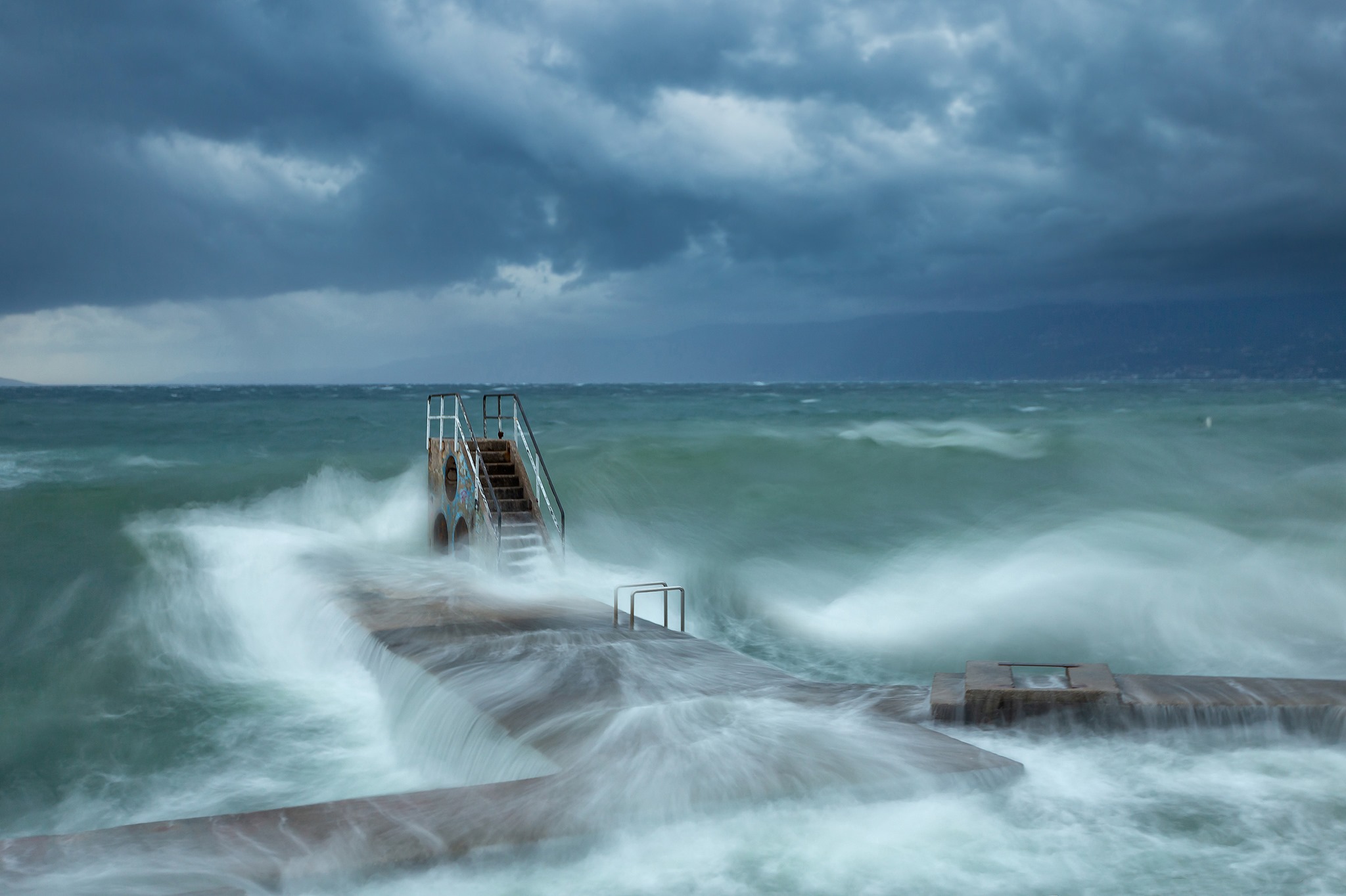 Photographer: Igor Popovic Photo taken: Rijeka
Photographer: Igor Popovic Photo taken: Rijeka
The winners of this year's competition have just been announced and the two fantastic examples of Croatia weather photography within the top 13 will take their place in the 2021 World Meteorological Organization calendar.
The 10 Croatian finalists from the 2019 competition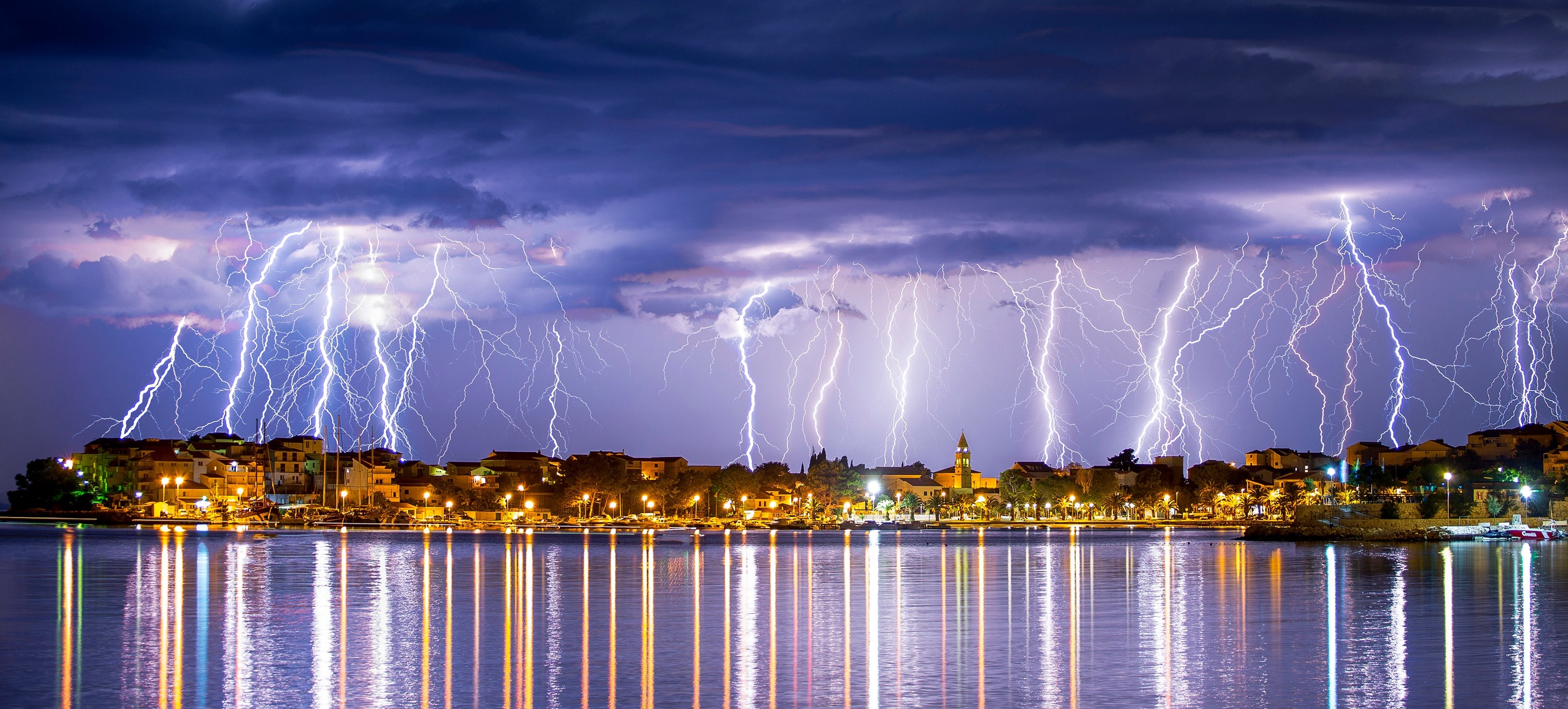 Photographer: Danica Sičič Photo taken: Srobreč, Dalmatia
Photographer: Danica Sičič Photo taken: Srobreč, Dalmatia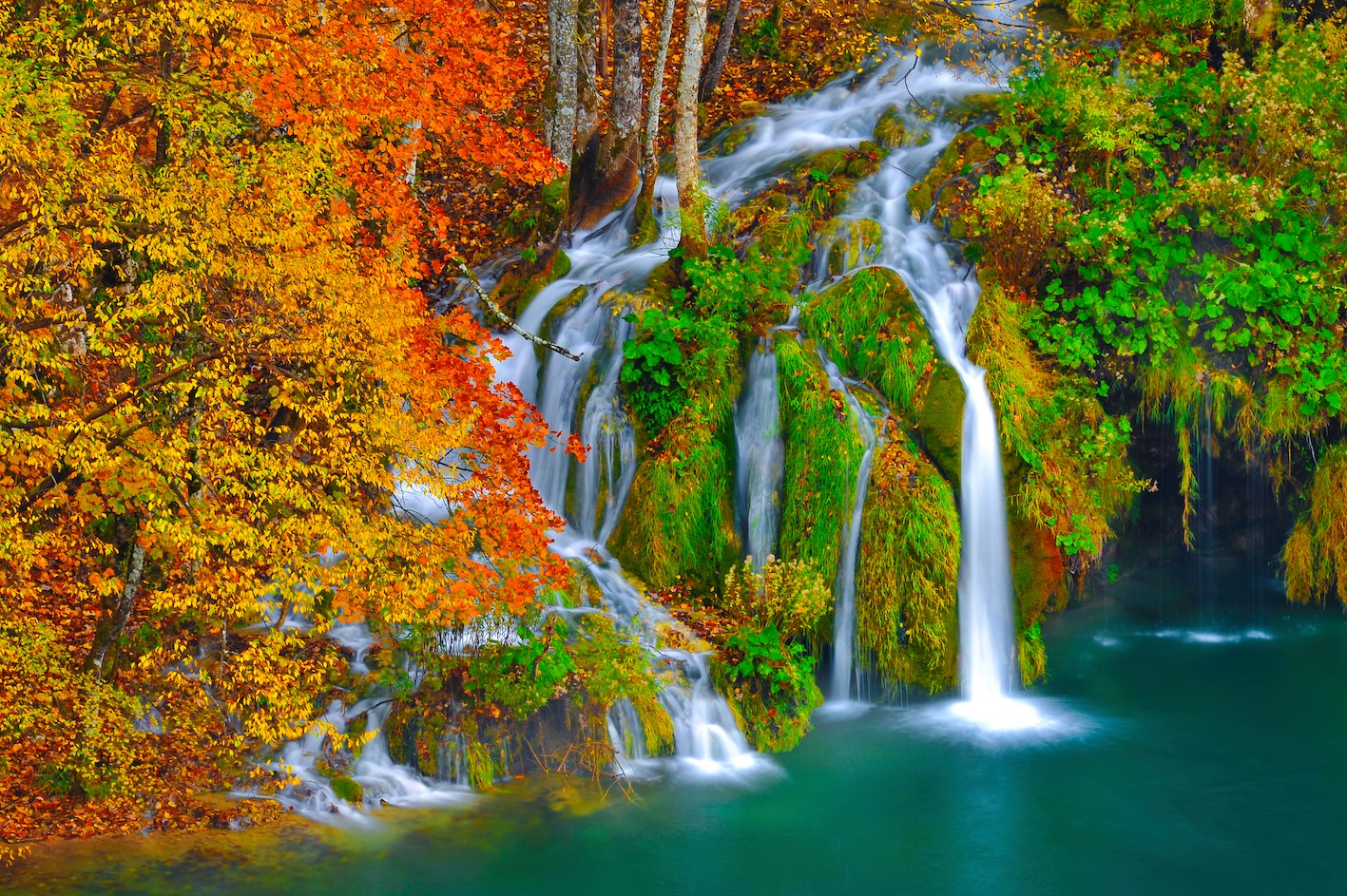 Photographer: Romeo Ibrišević Photo taken: Plitvice Lakes National Park
Photographer: Romeo Ibrišević Photo taken: Plitvice Lakes National Park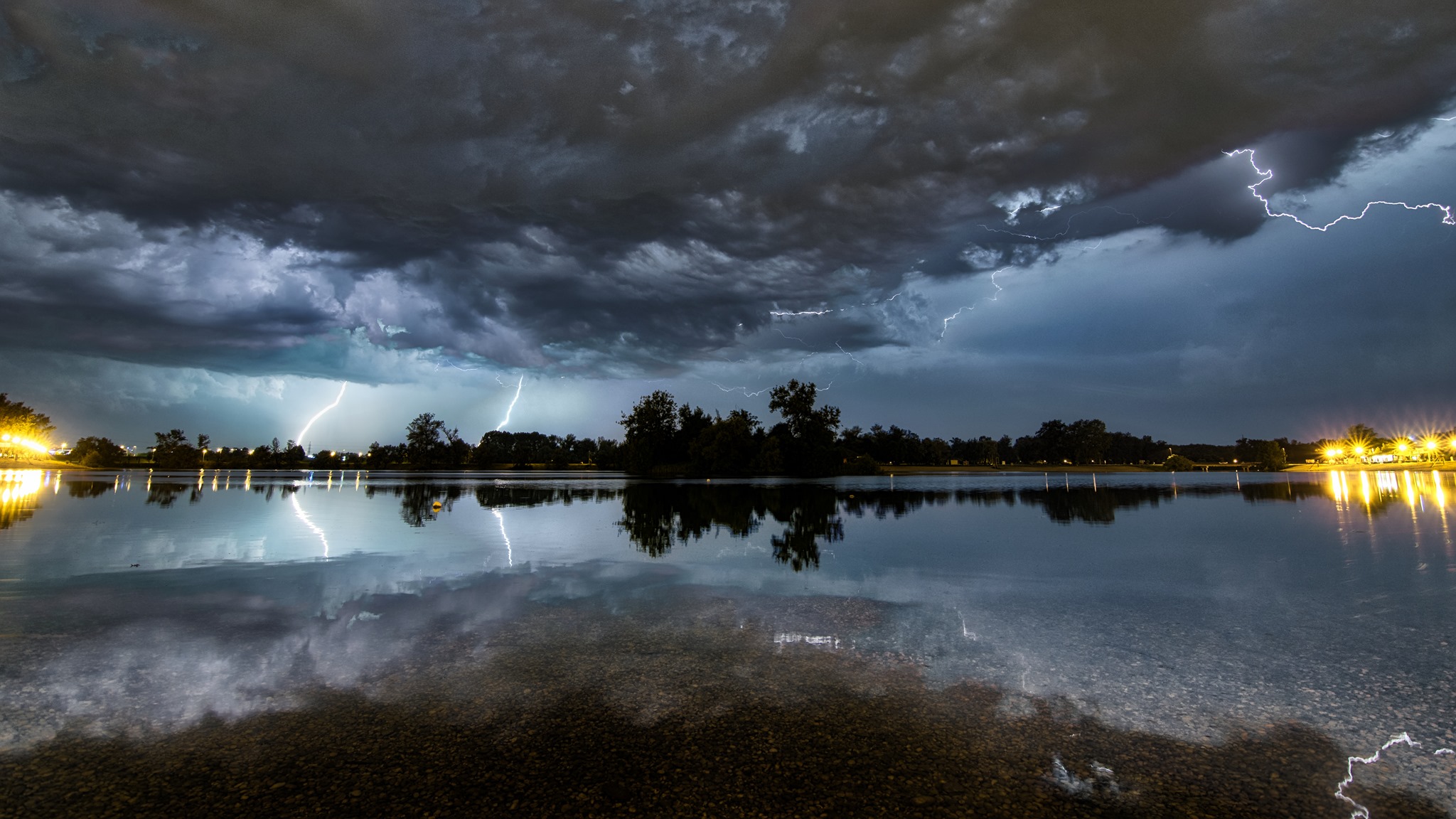 Photographer: Božan Štambuk Photo taken: Bundek park, Zagreb
Photographer: Božan Štambuk Photo taken: Bundek park, Zagreb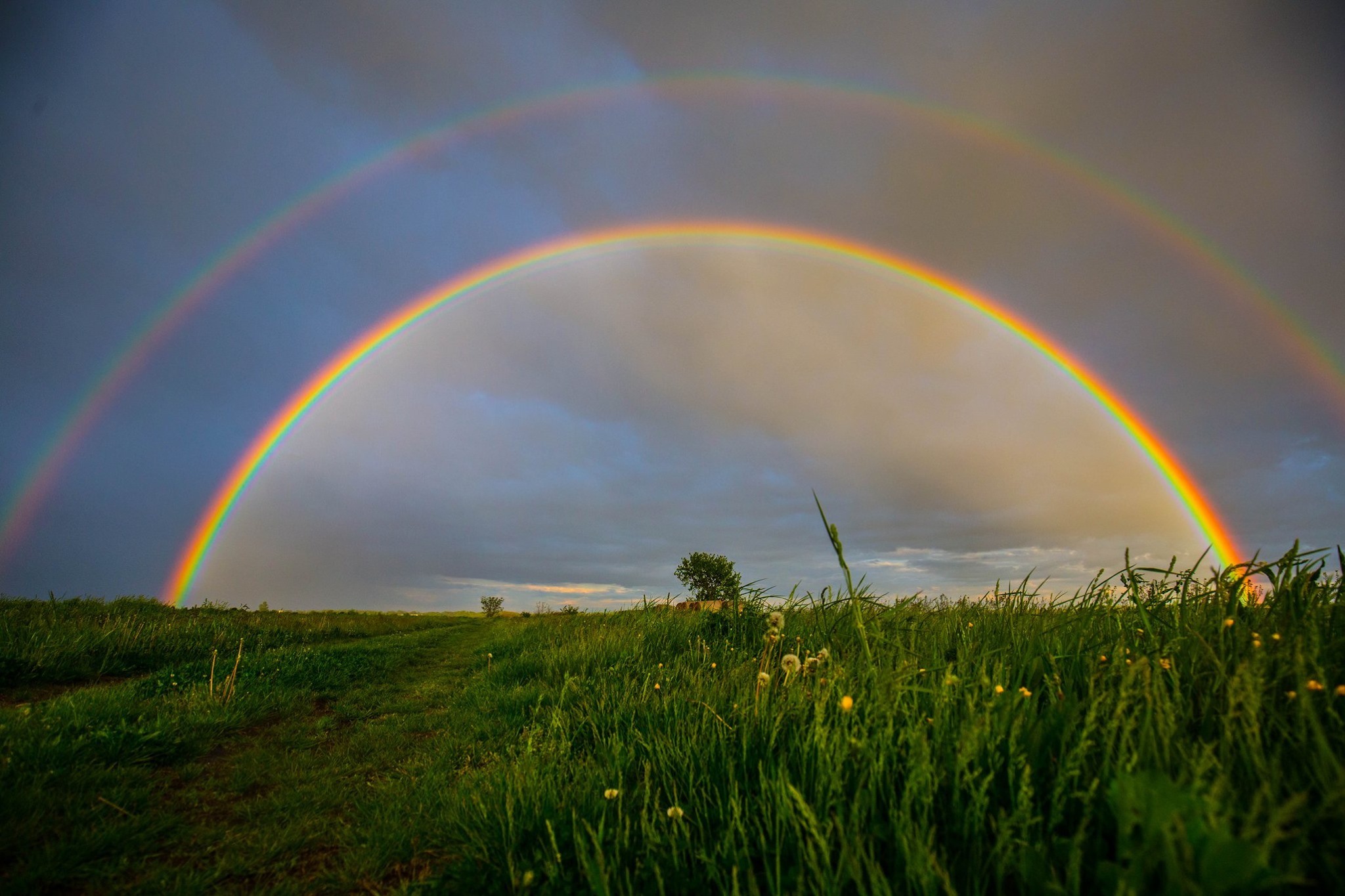 Photographer: Miroslava Novak Photo taken: Pribislavec, Međimurje
Photographer: Miroslava Novak Photo taken: Pribislavec, Međimurje
As well as the two winners, two further examples of Croatia weather photography came in the runner-up category, of which there were 12 in total.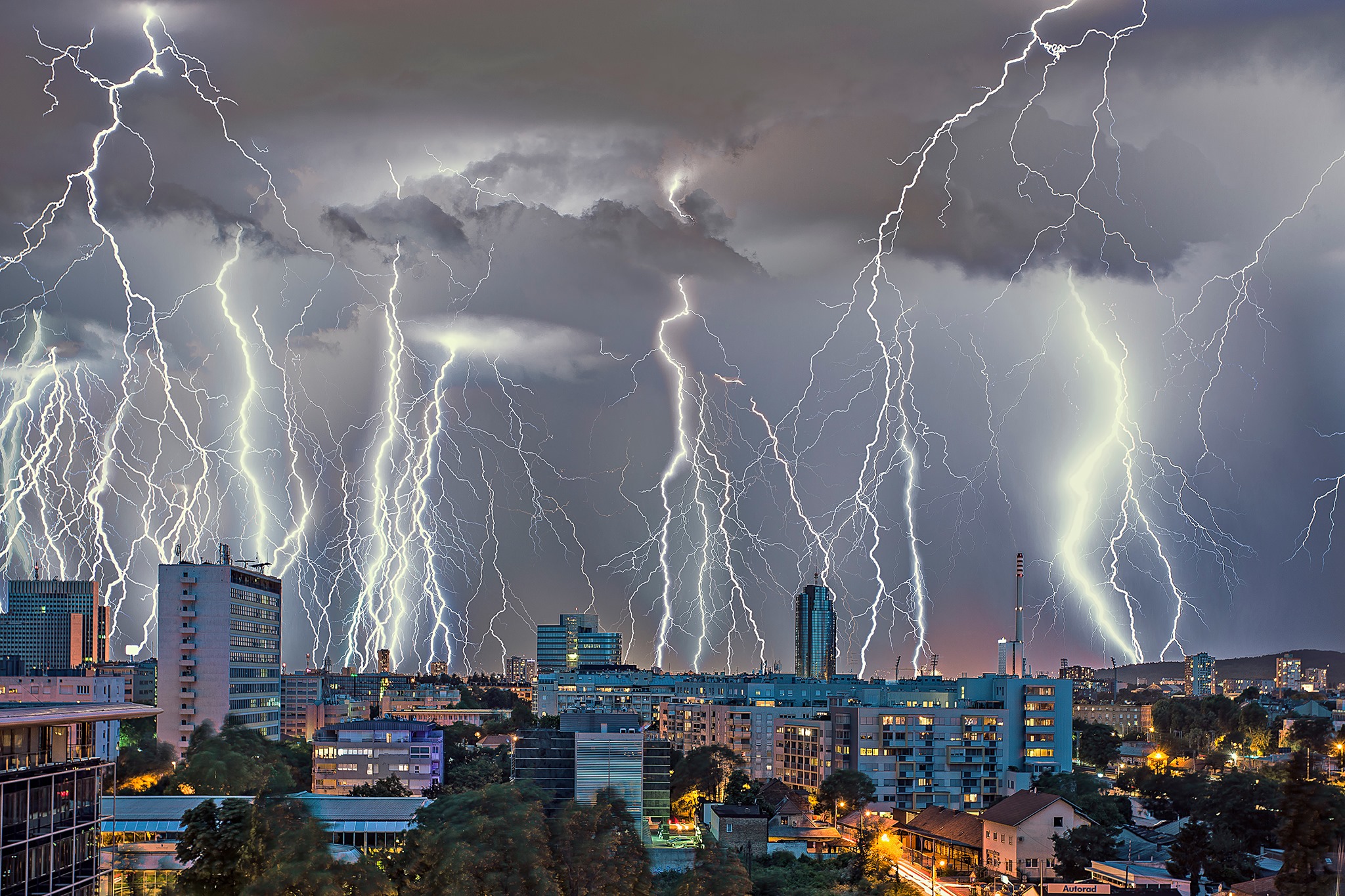 Photographer: Francesca Delbianco Photo taken: Zagreb
Photographer: Francesca Delbianco Photo taken: Zagreb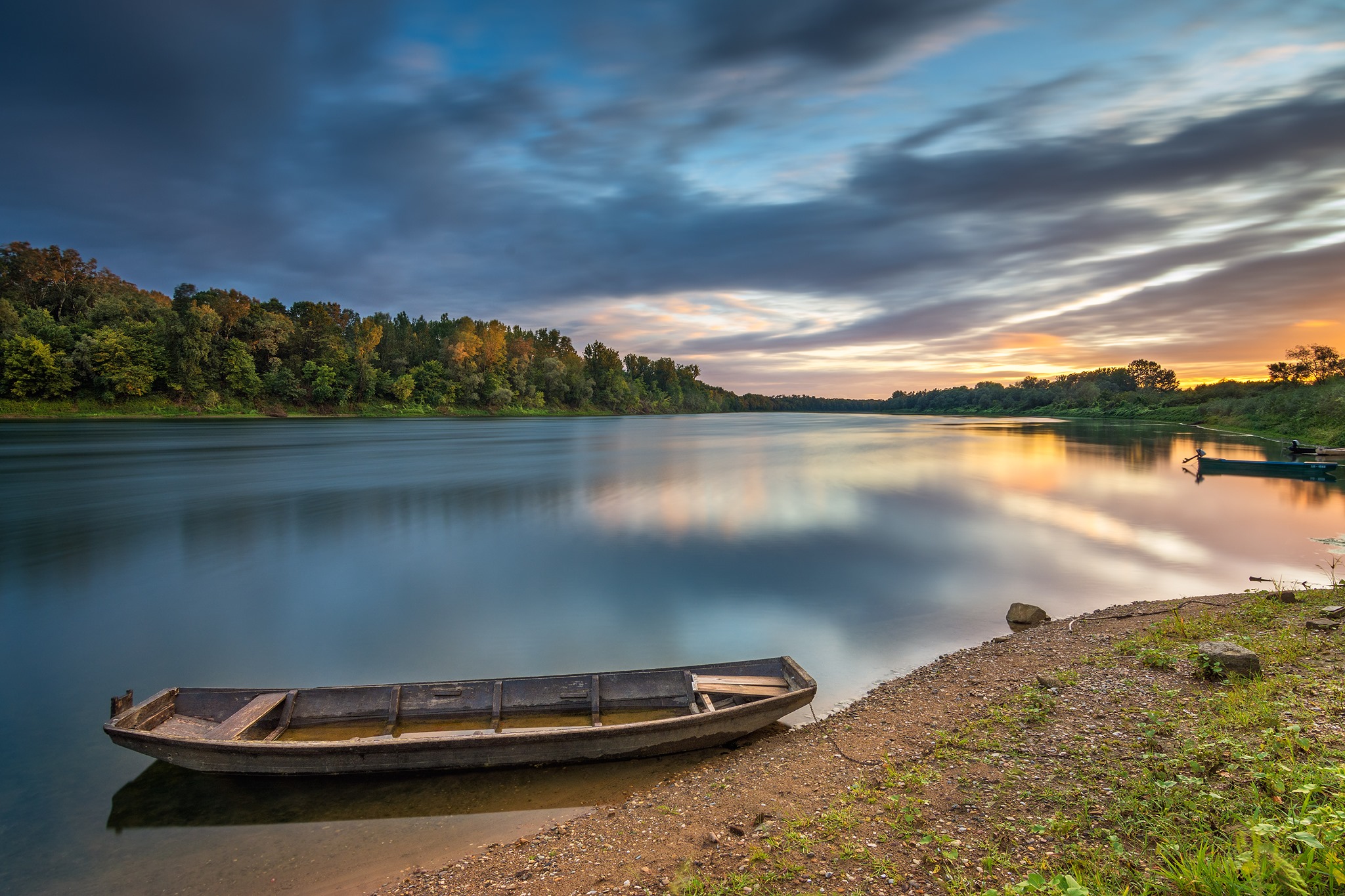 Photographer: Ivica Brlić Photo taken: Sava river, Davor, near Slavonski Brod
Photographer: Ivica Brlić Photo taken: Sava river, Davor, near Slavonski Brod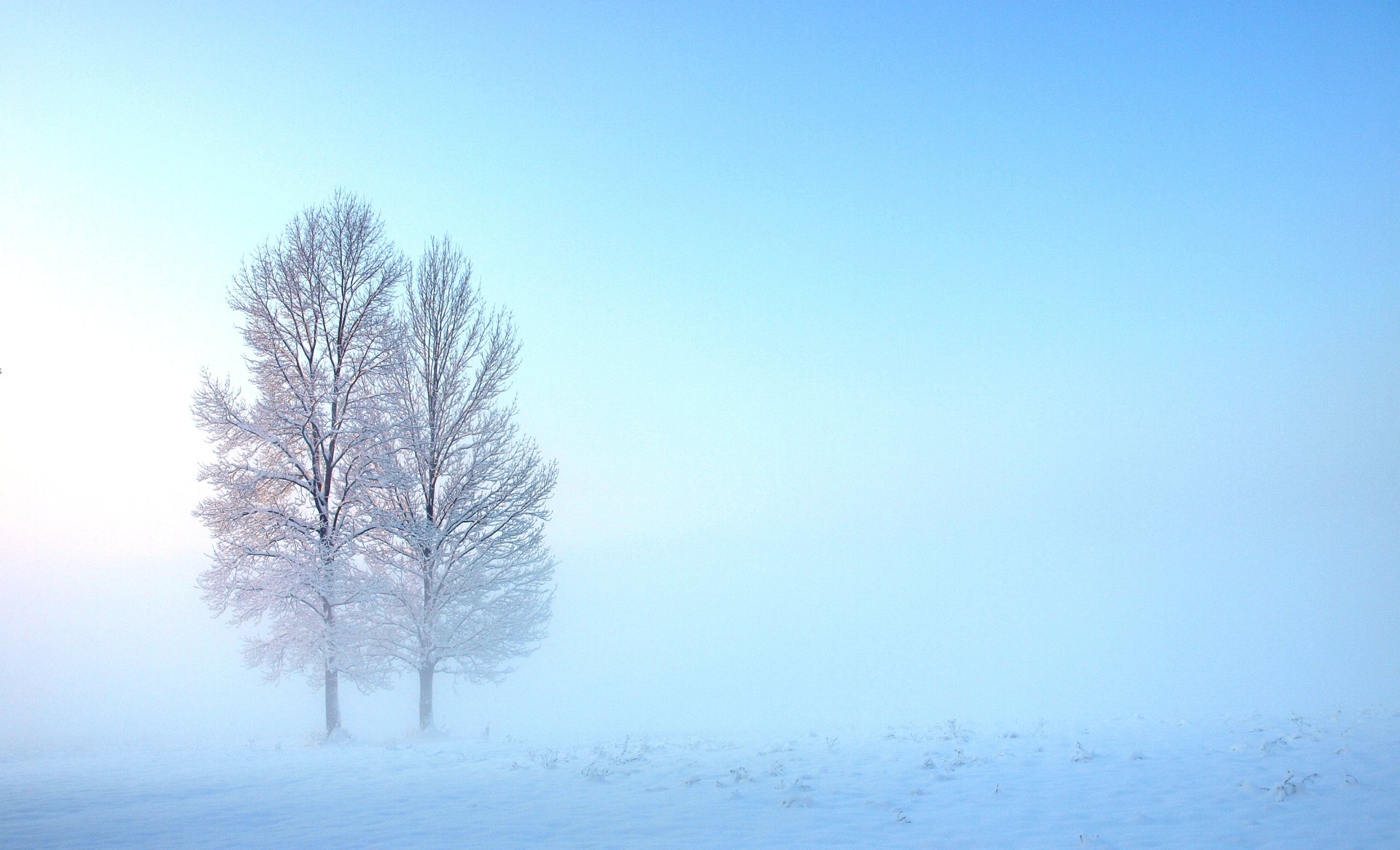 Photographer: Nataša Šafar Photo taken: Rečica, near Karlovac
Photographer: Nataša Šafar Photo taken: Rečica, near Karlovac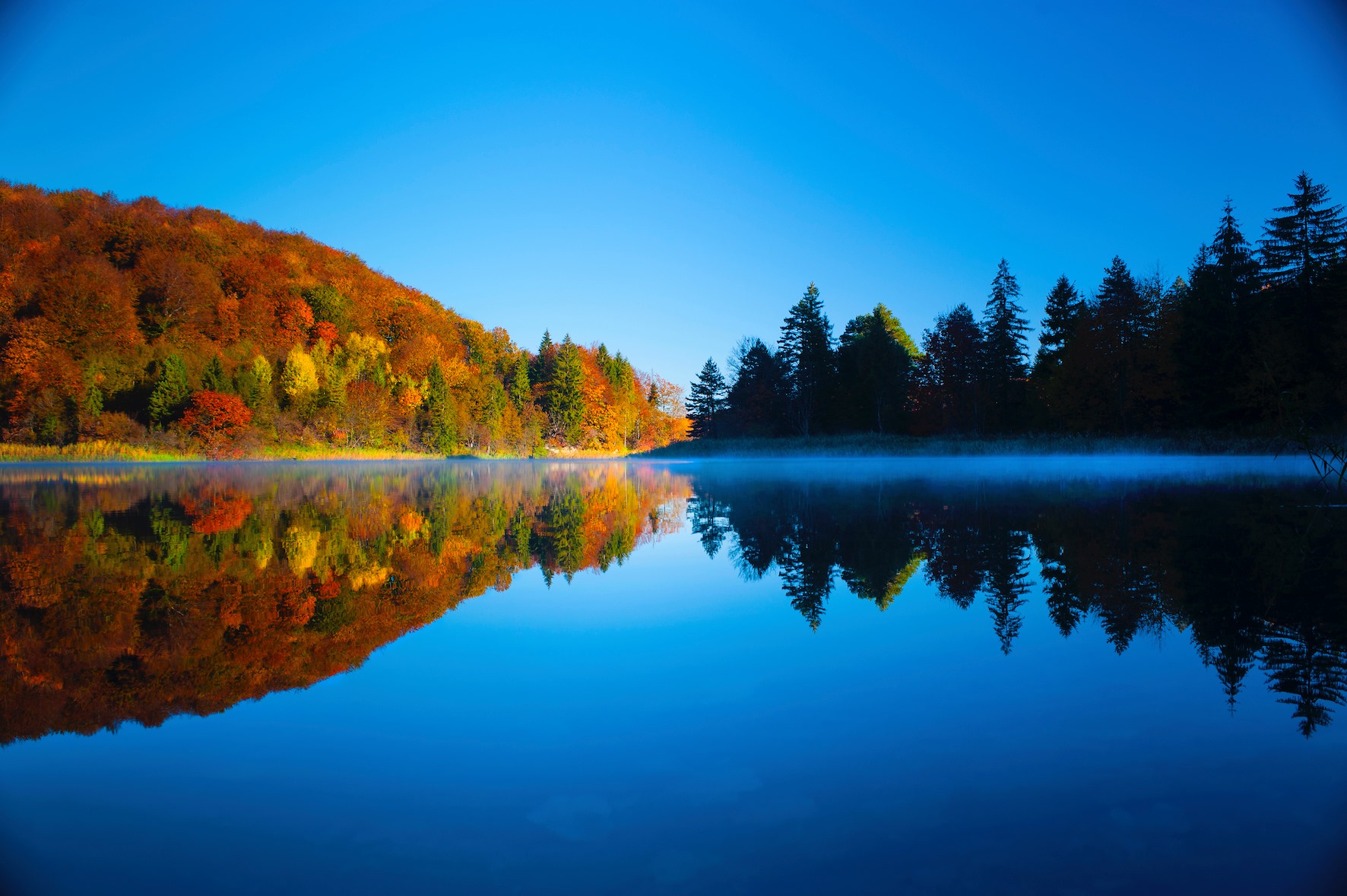 Photographer: Romeo Ibrišević Photo taken: Plitvice Lakes National Park
Photographer: Romeo Ibrišević Photo taken: Plitvice Lakes National Park
Over 1000 photographs from all over the world were entered in the 2020 competition. The submissions were narrowed down to a final selection of 70 contenders. As TCN reported back at the start of October, no less than 9 examples of Croatia weather photography made it into the final 70, taken by 7 Croatian photographers.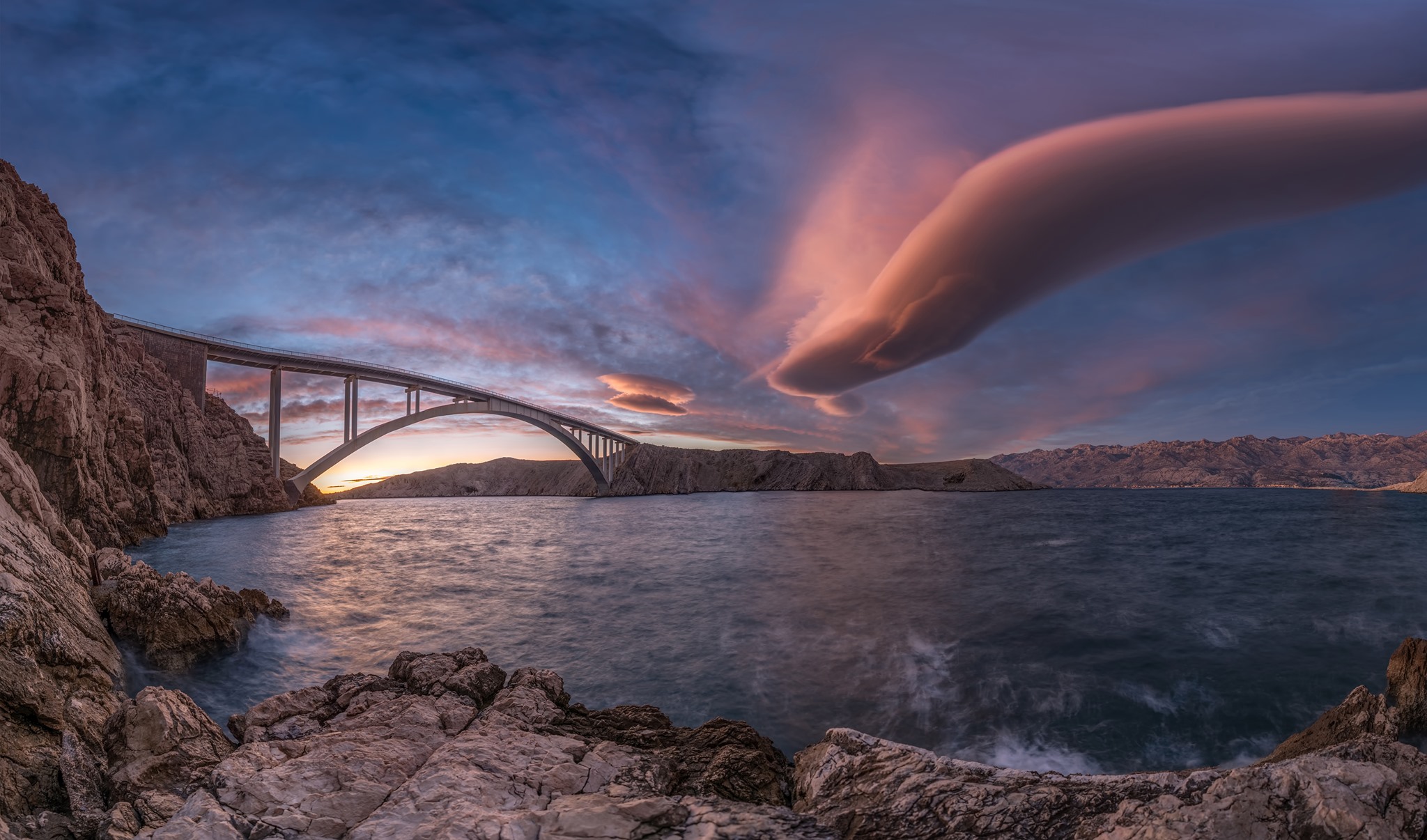 Photographer: Danijel Palčić Photo taken: Pag island
Photographer: Danijel Palčić Photo taken: Pag island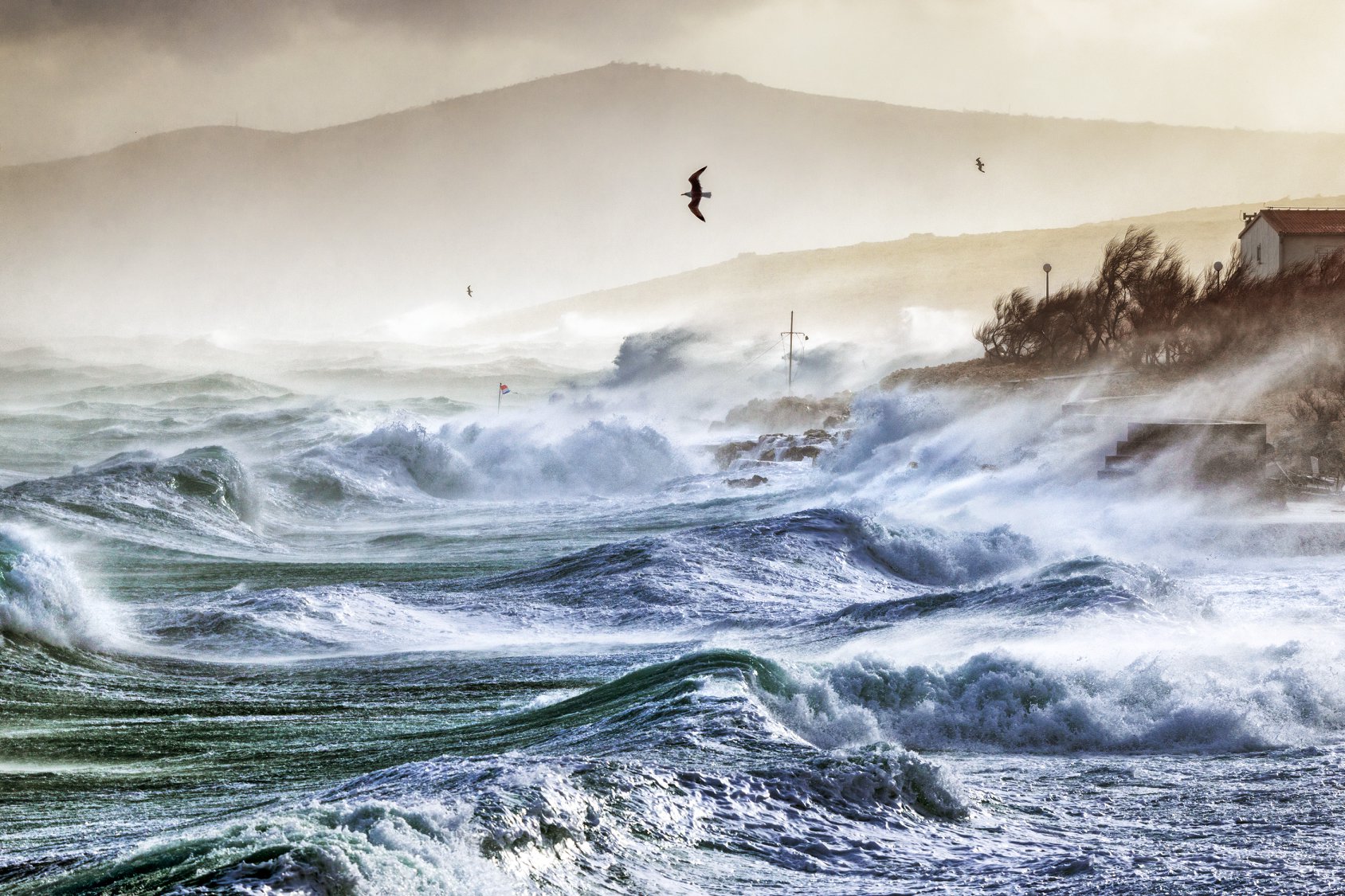 Photographer: Aleksandar Gospic Photo taken: Ražanac
Photographer: Aleksandar Gospic Photo taken: Ražanac
Croatia regularly punches well above its weight in the annual competition, as we can see from these 10 examples of incredible Croatia weather photography that were among the finalists in 2019.
All images courtesy World Meteorological Organisation
Plitvice Lakes National Park Announces Cheaper Ticket Prices Until End of Year
October 27, 2020 - Plitvice Lakes National Park announces cheaper ticket prices until the end of the year.
Namely, from October 26 to December 31, one-day ticket prices will be 80.00 kn for an adult, 50.00 kn for students, and 35.00 kn for children (7-18 years). Also, in the same period, the prices of two-day tickets will be 120.00 kn for adults, 70.00 kn for students, and 60.00 kn for children (7-18 years), reports HRTurizam.
"Plitvice Lakes National Park is special in every season, and autumn has a unique magic, so we invite everyone to discover it, surrounded by the colors and smells of forests and the sounds of waterfalls," said Plitvice Lakes National Park.
HRTurizam believes this is certainly an opportunity for travel agencies to make exciting weekend arrangements to offer a much broader tourist story of Lika because anyone can come for a day to Plitvice Lakes National Park, without the need for travel agency services.
Otherwise, Lika is slowly but surely developing from year to year, and thus offers a wide range of activities and facilities, from canoeing on the Gacko river, sleeping in treehouses, Deer Valley, the Velebit House, buggy rides, horseback riding tours, Lika gastronomy, cheese roads, and more. If you are targeting Zagreb, you can offer a full day trip to Karlovac and the surrounding area. From the phenomenal freshwater aquarium Aquatika to the new beer tour in the city of beer, which is on the way to Lika.
Plitvice Lakes National Park has also prepared a new gastronomic offer in their restaurants. Thus, in all facilities at the Park, you can taste traditional Lika dishes. And better yet? The National Park cooperates with small family farms, as well as local producers within the Lika Quality system, which consists of 57 producers with 160 products.
As Plitvice Lakes National Park points out, chefs from the Lika House have prepared new gastronomic offers for the autumn and winter seasons. Thus, visitors to the National Park will have the opportunity to order dishes such as traditional soup with lamb, potatoes and vegetables, tortellini stuffed with cottage cheese (handmade tortellini with pumpkin cream, arugula pesto, fried pumpkin seeds, sauteed mushrooms, cow cheese) and many others.
Plitvice Lakes National Park also invites visitors to buy tickets online, and they have even offered promotional prices in their accommodation facilities. Thus, bed and breakfast in a standard double room at the Hotel Jezero begin at 294.00 kn per person.
For the latest travel info, bookmark our main travel info article, which is updated daily.
Read the Croatian Travel Update in your language - now available in 24 languages.
Join the Total Croatia Travel INFO Viber community.
PHOTOS: Plitvice Lakes in Autumn Tones Create Beautiful Contrast
October 26, 2020 – On this day 41 years ago, Plitvice Lakes was included on the UNESCO World Heritage List. A look at the famous park in late October when it is covered in autumn tones.
One of the most beautiful natural sights in Europe and definitely a must-visit place in Croatia, Plitvice Lakes National Park, is known for its magnificent travertine barriers that create 16 clear lakes separated by the numerous cascading waterfalls.
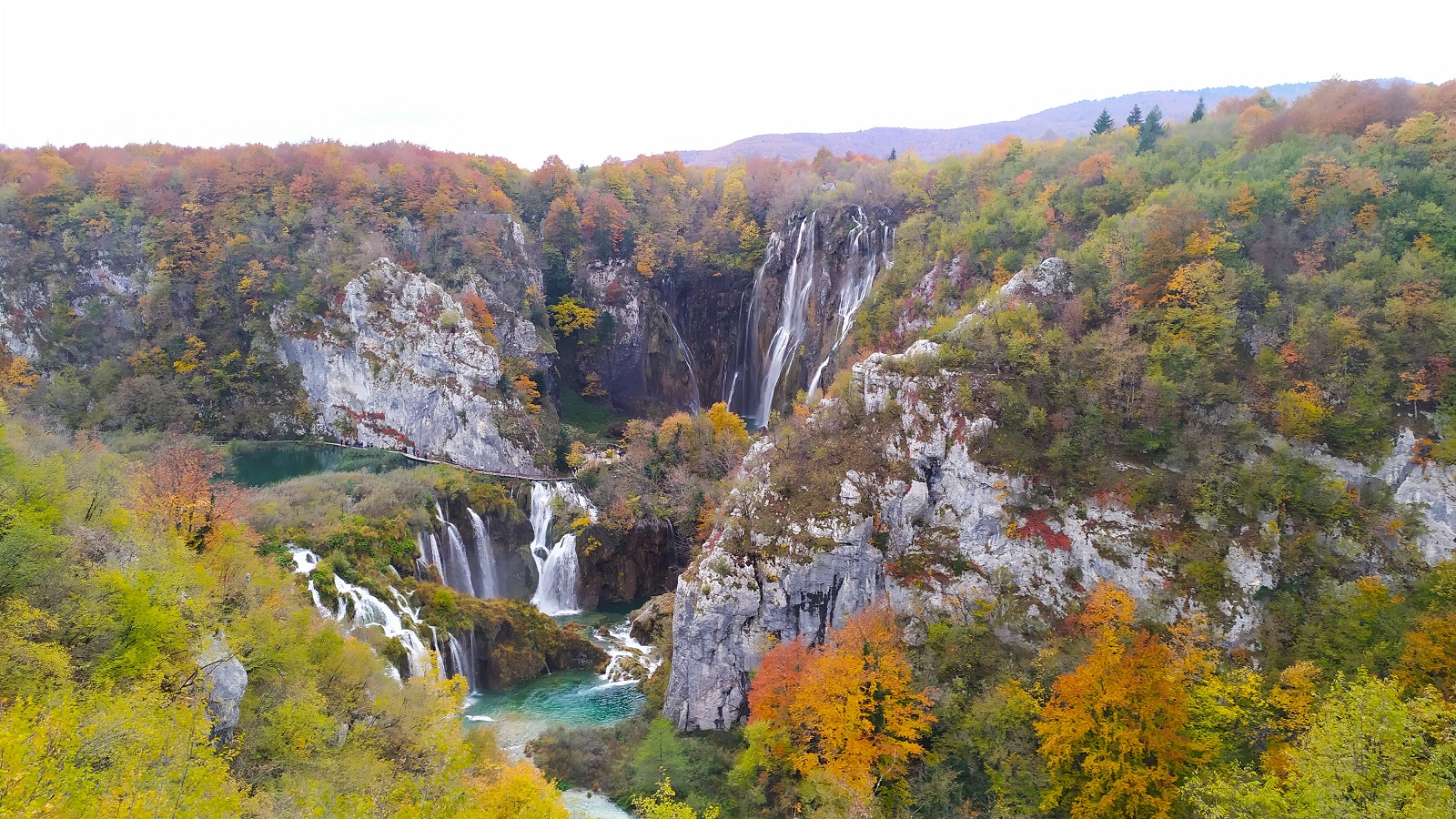
Although Plitvice Lakes are known for the crystal clear water of lakes and green vegetation, in autumn their appearance turns into a real colorful landscape due to the yellow and orange leaves of the surrounding treetops.
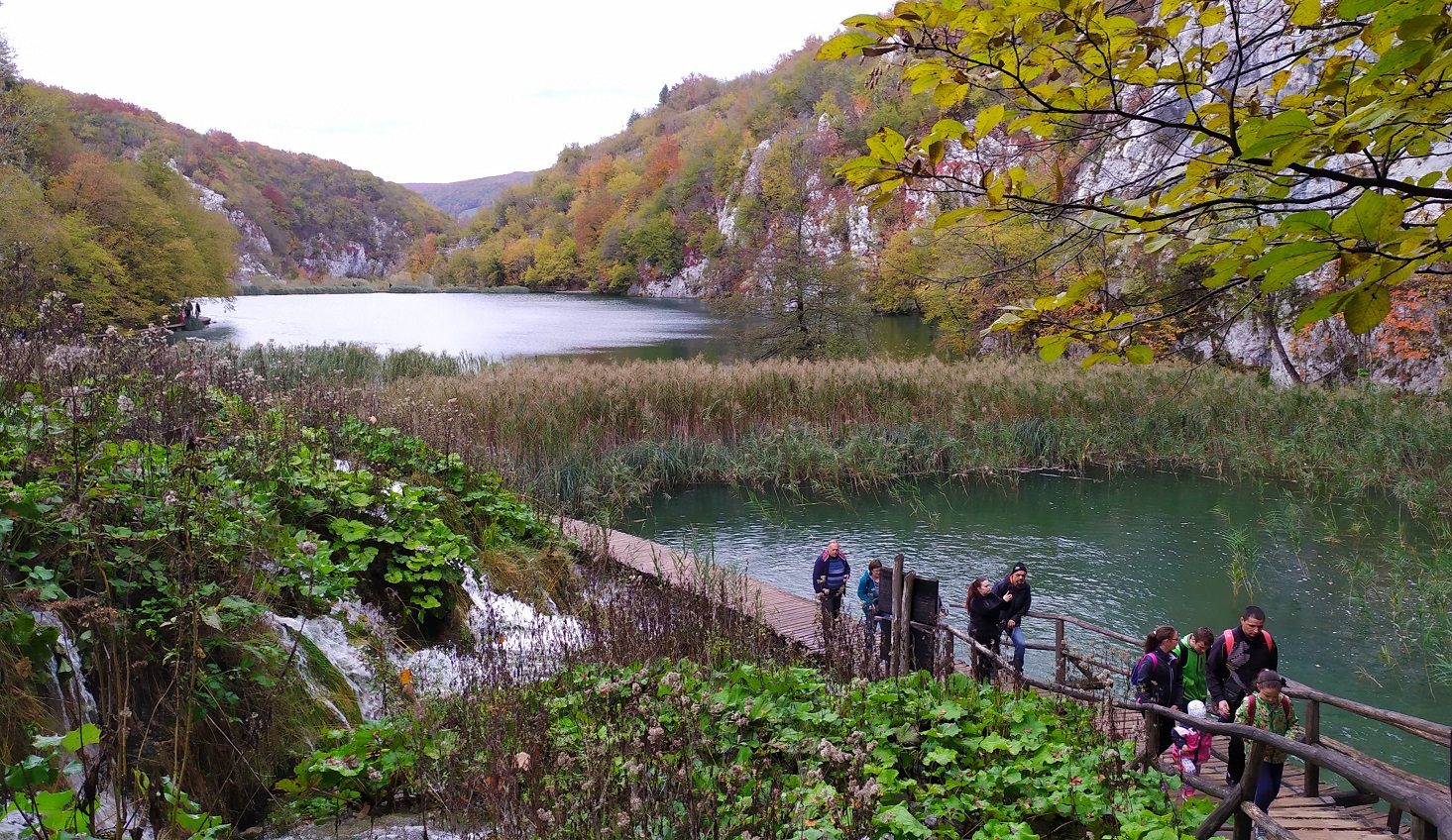
Plitvice Lakes are located in the Korana River valley where the travertine barriers block it, and the area of the national park stretches through Karlovac and Lika-Senj counties. Whether it is spring, summer, autumn, or winter, Plitvice Lakes exude their unique beauty at any time of the year, and autumn stands out as it creates a beautiful contrast between the orange leaves of the deciduous forest and the clear green waters of lakes.
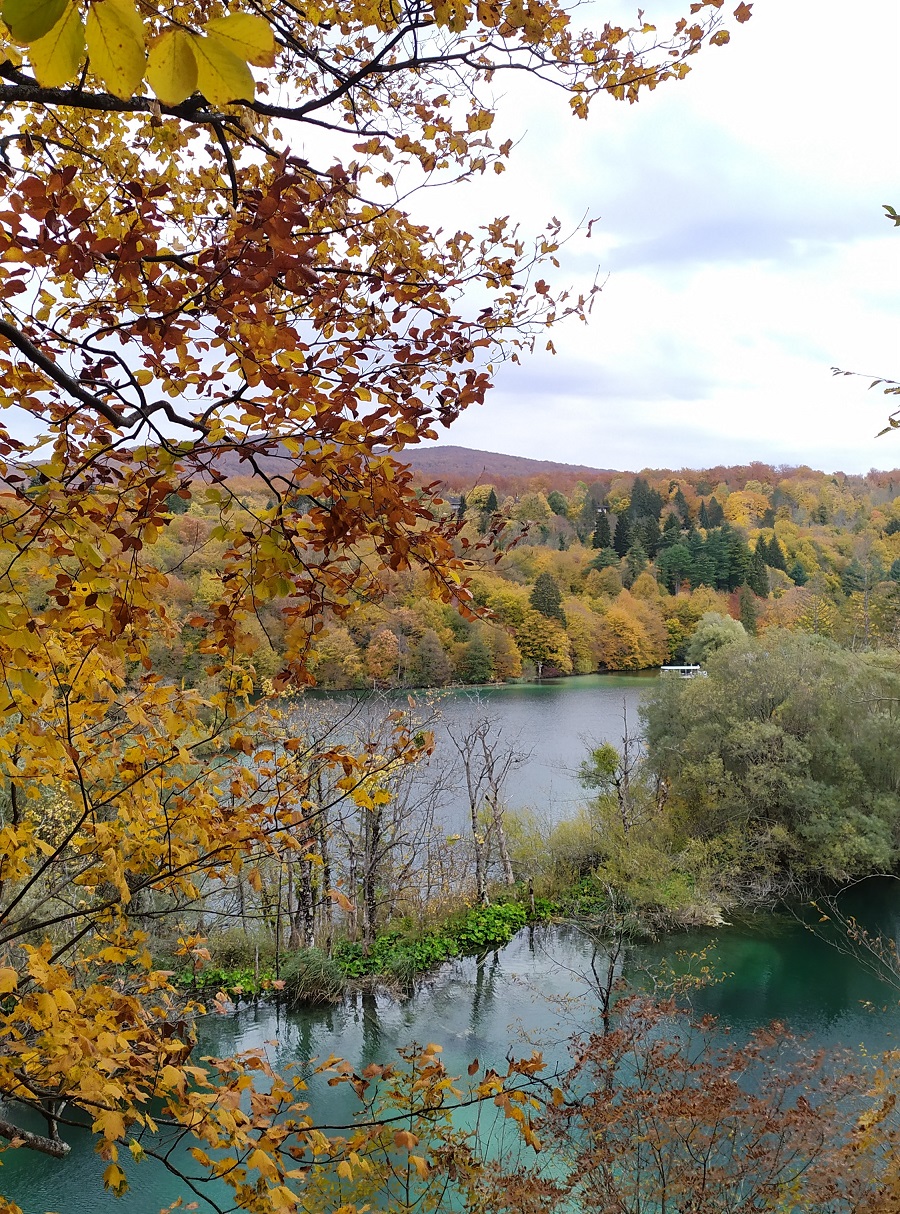
Anyone who visits Plitvice at this time of the year will not remain indifferent walking the wooden paths watching the waterfalls that make their way through the diverse vegetation. The lakes are now filled by the contrast of variegated deciduous treetops and clear lake water, as well as the contrast of fast and loud waterfalls defying calm parts of lakes.
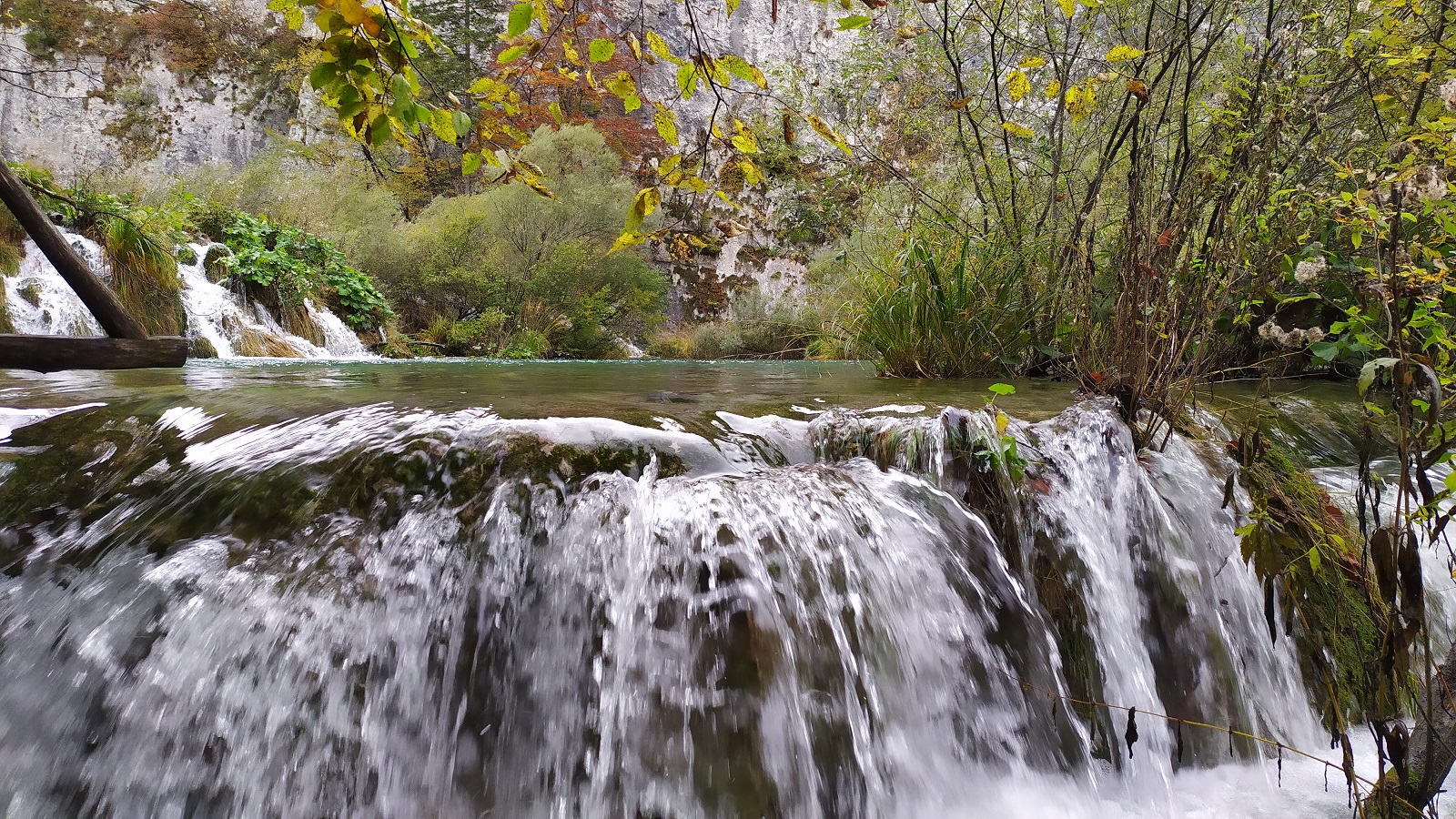
A boat ride on the largest lake Kozjak and a train ride on the hilly part of the park allow visitors to even better observe and absorb the coexistence of lakes, forests, and plants. This time of the year, yellow and brown leaves cover wooden paths and edges of lakes where ducks and fish freely swim.
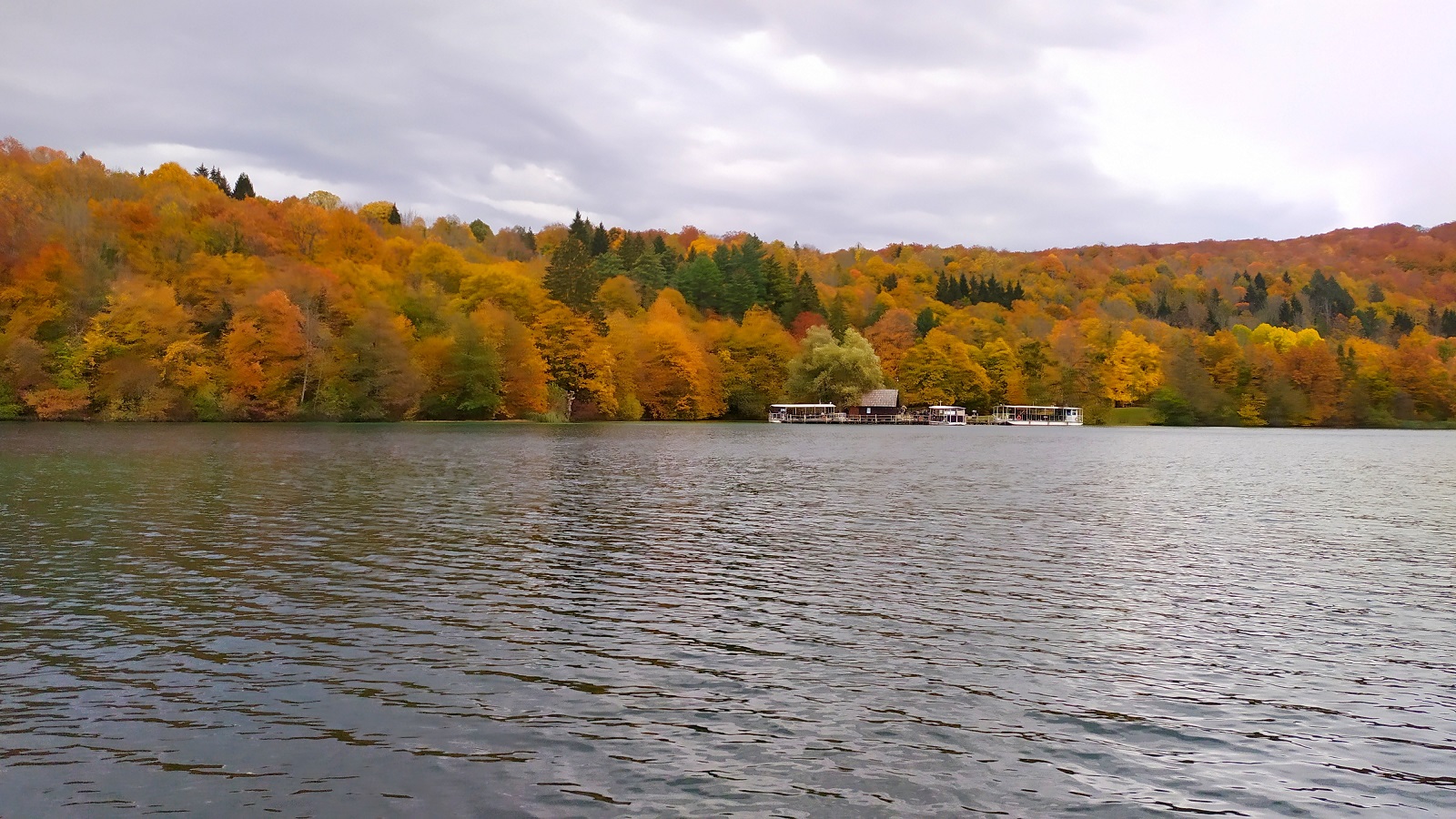
The natural process of travertine is responsible for Plitvice's shape since travertine barriers create lakes and waterfalls, which is why this colorful paradise was included on the UNESCO World Heritage List on this day 41 years ago, but also because of its well-preserved forest and rich fauna.
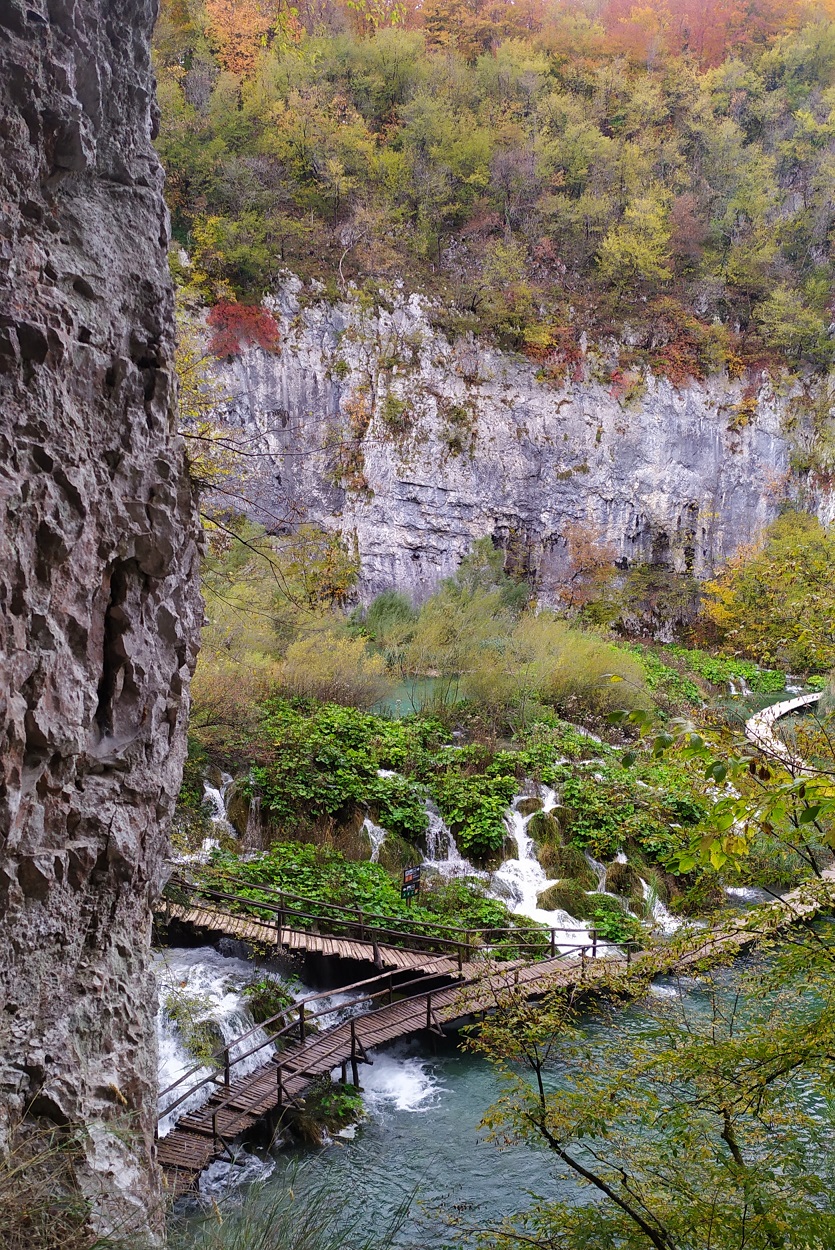
The first and the biggest Croatian national park, Plitvice Lakes was placed on the World Heritage List as the only natural heritage at the time. Today this list counts as many as 1121 world heritage sites, and 213 as natural heritage.
Alongside Plitvice Lakes, the natural heritage under UNESCO protection in Croatia consists of two more national parks – Paklenica and Northern Velebit, and a group of rocky peaks of Velebit called Hajdučki and Rožanski kukovi made the list too. They are all part of UNESCO's Ancient and Primeval Beech Forests of the Carpathians and Other Regions of Europe.
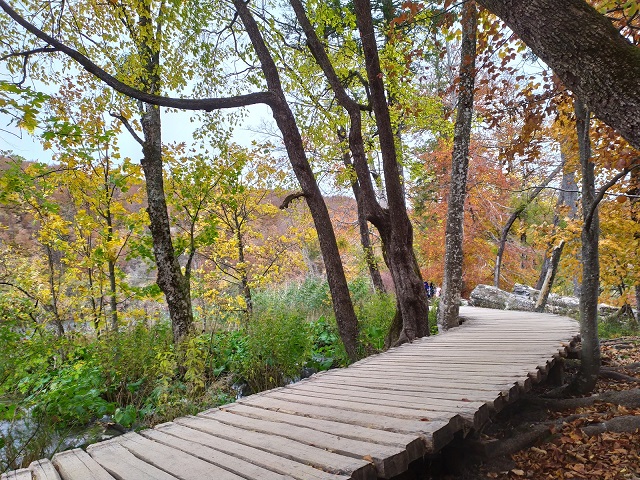
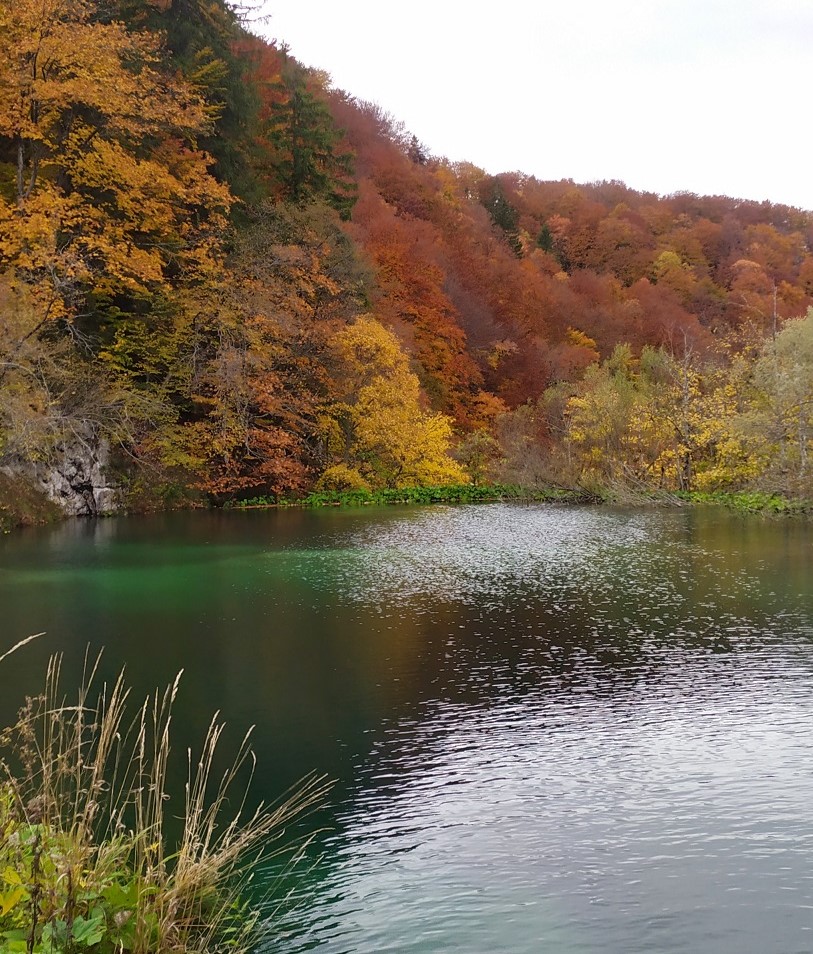
The Croatian region of Lika, where Plitvice Lakes and all other UNESCO nature sites in Croatia are located, proves to be rich with natural heritage that is unique in Europe and is worth visiting when in Croatia.
All photos © Donatella Pauković
For the latest travel info, bookmark our main travel info article, which is updated daily.
Read the Croatian Travel Update in your language - now available in 24 languages.
Plitvice Lakes National Park is Developing A Zero-Waste Strategy
October 4, 2020 - Plitvice Lakes National Park is developing a zero-waste strategy. A look at the UNESCO-protected park's sustainable development.
HRTurizam writes that Plitvice Lakes National Park is at first associated with green and sustainable development. However, a few years ago, it was just the opposite. Fortunately, some of the significant problems have been solved, such as the congestion of visitors and septic tanks, and today the situation is much better than several years ago.
Thus, Plitvice Lakes National Park uses electricity from renewable sources for the last two years. This week, for the second year in a row, they received the ZelEn certificate, which confirms that 6,351 MWh of electricity was delivered from renewable sources.
In this way, Plitvice Lakes National Park procures electricity from certified hydropower plants, with special attention paid to evidence of the harmlessness of the power plant's impact on the environment and the disposal of hazardous waste, according to Plitvice Lakes National Park.
This is green energy obtained exclusively from renewable sources, which is delivered by HEP through the ZelEn certificate. Also, the buyer of ZelEn acquires the right to use the trademark ZelEn - Friend of Nature for promotional and marketing purposes, which is imperative today. Otherwise, according to HEP, green electricity is more expensive, i.e., additional 20 eurocents or about 1.5 kuna / MWh.
In 2018, Plitvice Lakes National Park introduced new lighting that uses LED technology that consumes up to 50% less electricity and is more favorable for wildlife because the light is not scattered in all directions but is directed only to the narrower area around the trail. The lighting is also programmed to work at 40% intensity for most of the night when there is no need for intense light.
"It is imperative to us that flora and fauna feel the presence of man and his technologies as little as possible, so this project was of great importance," states Plitvice Lakes.
Food waste is a big challenge today. Due to a considerable amount of it, but also the use of soil, water, and energy to produce excessive amounts of food, our footprint on the planet are colossal, and analyzes indicate that as much as 70% of biodiversity is lost by deforestation to agricultural land.
Unfortunately, Croatia does not lag behind global data. We throw away about 400,000 tonnes of food a year, contributing to European figures around a staggering 90 million tonnes, about 20 percent of total food production. i.e., 173 kilograms per capita. The value of the food thrown away is 143 billion euros. Also, for the production, distribution, and storage of food, natural resources are consumed, and the ecological footprint is further increased. That is why the World Conservation Organization (WWF) has recognized food waste as one of the most important programs of its work.
It is for this reason that, together with the Jezero Hotel of Plitvice Lakes National Park, it has joined forces in a project to reduce food waste.
“As a UNESCO-protected national park, the importance of influencing nature conservation and raising awareness about waste reduction is an important determinant of our actions. As we manage several catering and accommodation facilities, we are faced with the great challenge of reducing our environmental impact. Through numerous activities and projects with which we started, we strive for a "zero waste" strategy," according to Plitvice Lakes National Park.
With the introduction of biodegradable packaging in 2015, removing plastic from business began. All generated waste in the hotel is separated, while biowaste is used to produce biofuel and animal feed.
Promotional materials are printed on eco paper, food is procured through green procurement and cooperation with WWF.
“With proper internal communication, communication with guests in our hotels through informative and educational messages and excellent cooperation with WWF on this commendable project, we believe in excellent results, and we are proud that our largest hotel Jezero was among the first hotels in Croatia with this project," concluded Plitvice Lakes National Park.
Plitvice Lakes National Park finally has a clear Management Plan, visitor counters, online ticket purchase, electric vehicles as well as an electric boat are used, products from local family farms are encouraged and used, and they received the green light from UNESCO, which has just monitored all protection processes and even threatened to remove Plitvice Lakes from the UNESCO list. The situation today is much different than 5 or more years ago.
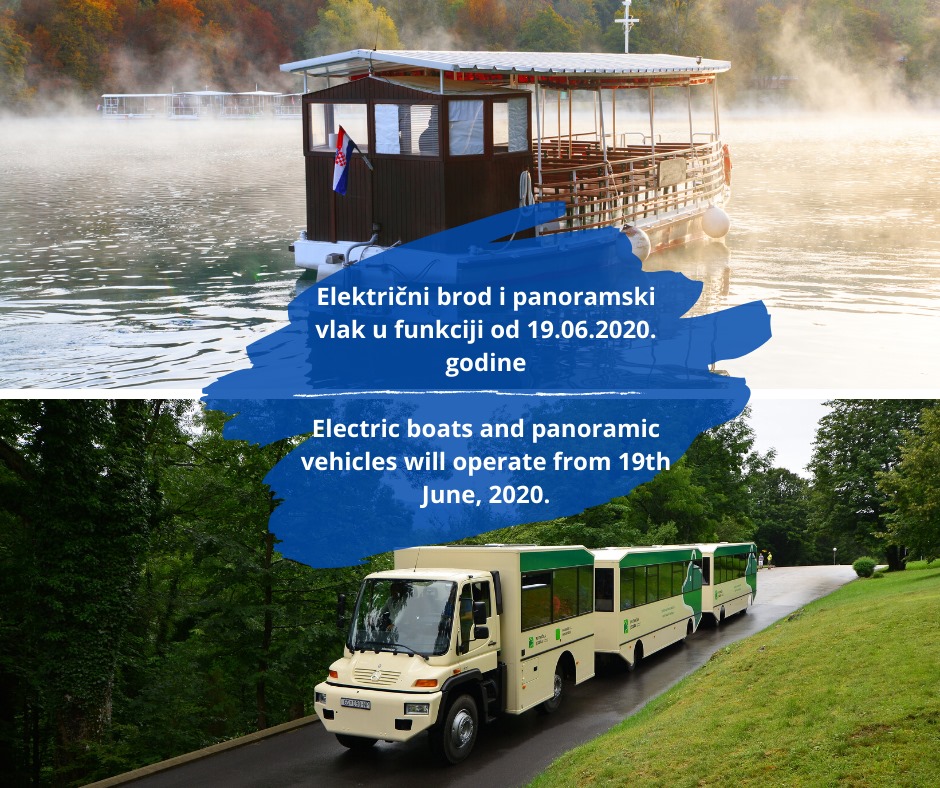
Plitvice Lakes
“The management plan sets basic goals in achieving the vision of the National Park, according to which a good way of managing the protected area and cooperation with the local community is the foundation of sustainable development. In achieving these goals, special attention should be paid to preserving the unique universal value of the Park, preserving the tradition and cultural identity of the area, sustainable development of the local community and building a partnership in which the local community recognizes the Park as part of its identity."
You can download the Plitvice Lakes National Park Management Plan until 2028 HERE.
The UNWTO defines sustainable tourism as tourism that fully considers current and future economic, social, and environmental impacts and takes care of the needs of visitors, sectors, environment, and destinations.
Therefore, sustainable tourism should make optimal use of environmental resources that are a key element of tourism development, retain essential ecological processes, and protect natural heritage and biodiversity. Respect the destination's socio-cultural authenticity, preserve their built and living cultural heritage and traditional values, contribute to intercultural understanding and tolerance, and ensure that economic activities are sustainable and long-term.
The World Wide Fund for Nature (WWF) has been the leading voice for nature for more than half a century, and they also operate in Croatia.
Crowds of tourists coming to the Adriatic beaches, islands, towns, and cities cause enormous pressure on both infrastructure and natural resources. In response, WWF points out our protected areas are looking for new, commercially viable alternatives in the form of ecotourism.
Mass tourism is not inclined to care about nature - and the consequences are disastrous. Tourism is one of the main causes of ecological collapse in the region. Some once untouched places can no longer be rebuilt today. Unsustainable tourism activities also harm protected areas. We also know the negative effect of Instagram destinations, where they suddenly become so popular that they ruin an entire destination that cannot accommodate so many tourists.
Tourism, if well managed, can support nature conservation while contributing to sustainable development and providing opportunities for income and a better quality of life for local people, the WWF said, and add that caring for natural heritage through protected areas is key to sustainable development and is the foundation of socio-economic well-being. A more efficient and ecologically oriented form of tourism or ecotourism.
In response to these key issues in Croatia, WWF focused on four components in its work on tourism: the project should have a positive impact on the environment and contribute to nature protection and conservation, commercial sustainability, local community development, and respect for the culture. Local circumstances, traditions, values, and human rights and gender must be respected.
Today, more than ever, the focus is on sustainable development and ecology, and destinations that go that route will certainly benefit.
For the latest travel info, bookmark our main travel info article, which is updated daily.
Read the Croatian Travel Update in your language - now available in 24 languages.
Join the Total Croatia Travel INFO Viber community.


